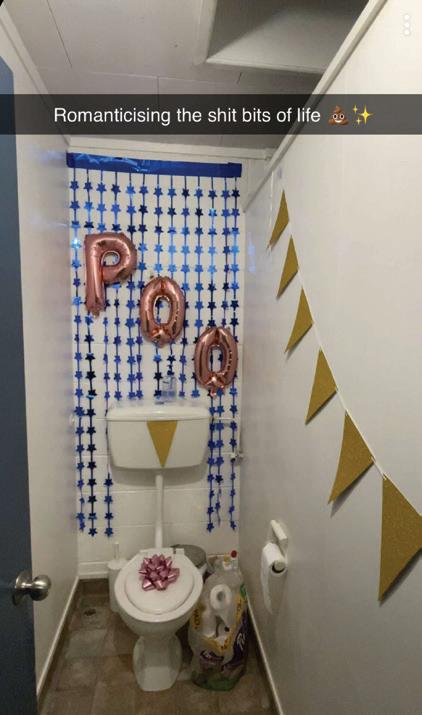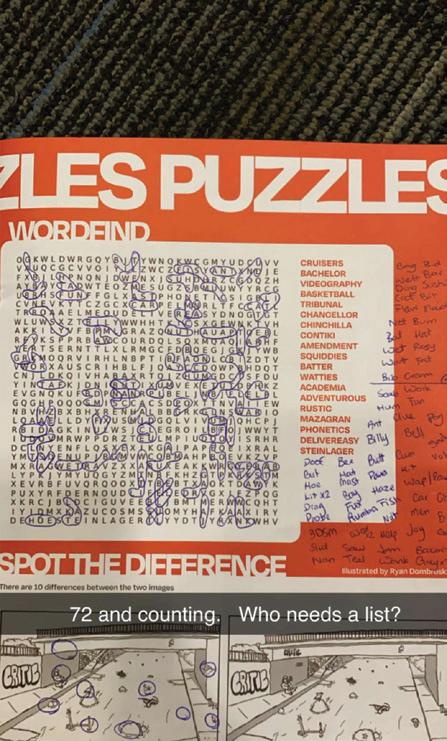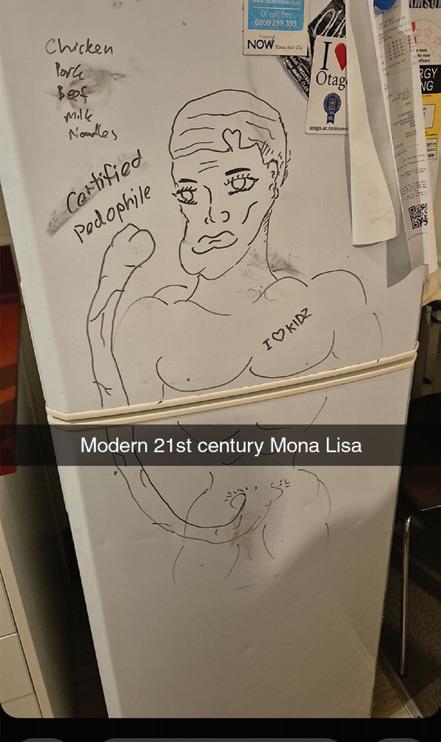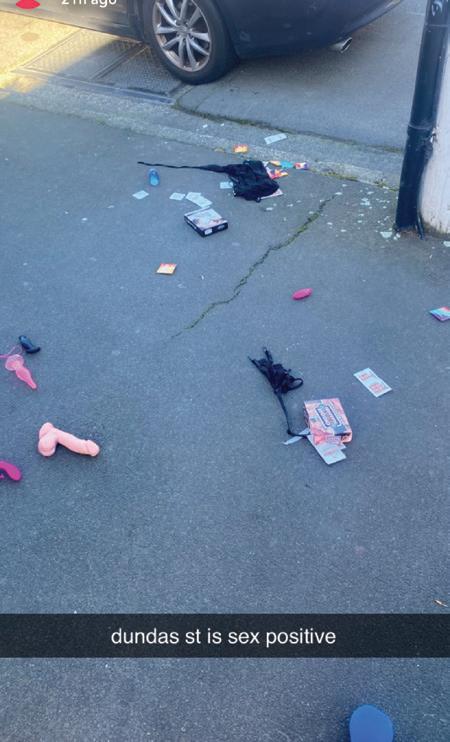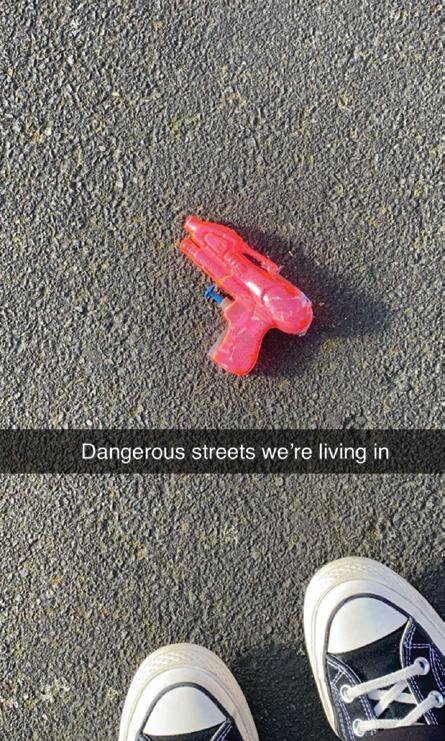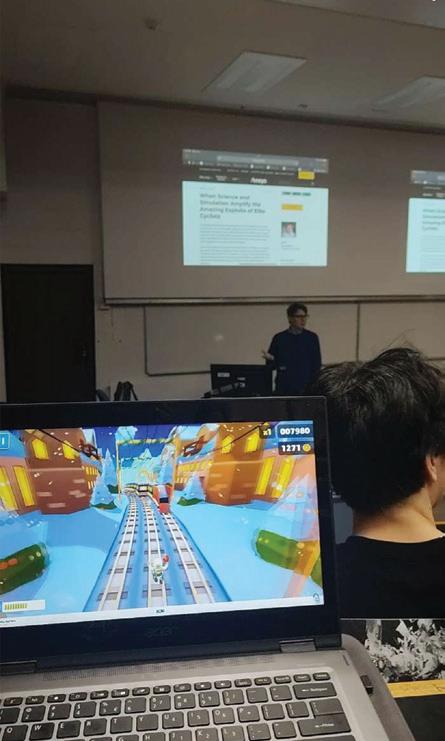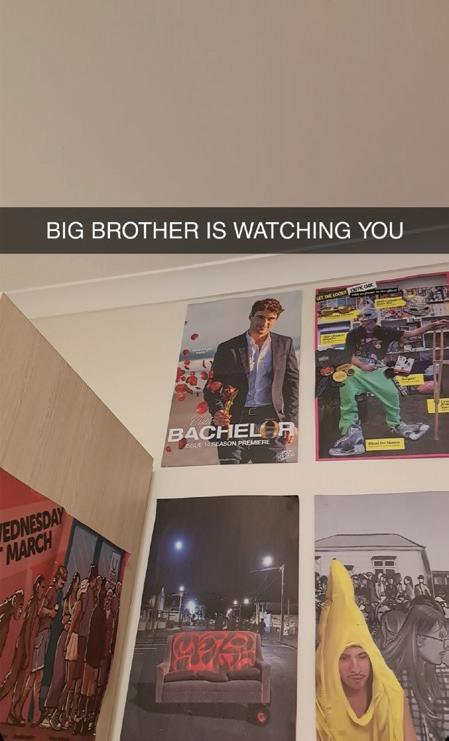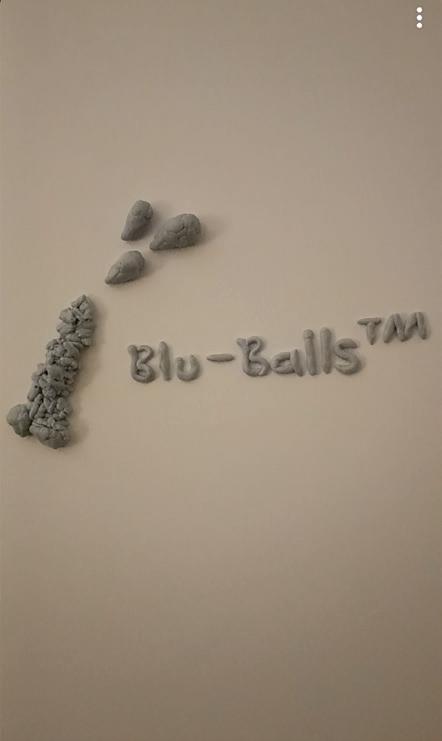






I’m doing Dry July. And it’s been kind of… nice. When I’d thought about doing Dry July and how it might be a nice break, it was a small shock to realise that I couldn’t remember the last time I’d gone so long without a drink. And that bothered me.
Earlier in the year, I wrote an editorial defending students’ right to drink. As adults, you have the right to choose what you put into your body. The very people who now criticise students for their drinking habits were likely just as bad (or worse) back in the day. Nowadays, they probably mask it by drinking nicer alcohol, like wine that doesn’t burn on the way down, or switching up the Billy Mavs for a scotch on the rocks. But at the end of the day, it’s still alcohol. It still gets you drunk. I stand by my defence of students’ individual choices. But you’re kidding yourself if you think that your drinking choices are entirely your own; that they haven’t been shaped by New Zealand’s binge-drinking culture. We’re all just as bad as each other in this country. We drink for every reason under the sun – a nation of rubber arms. In Dunedin, our reason can be as simple as it being a Tuesday and you’ve got nothing better to do than sink a bottle of wine on your lounge floor.
I’ve lived in Dunedin for five years now. Going home for semester breaks during my undergrad, I’d notice how differently I’d been socialised compared to my friends who’d gone to other unis. It would surprise me to find that the dinner we’d organised wasn’t assumed to be a drinking event, rocking up with a box only to find no one else had. My flatmates would greet me with similar stories, and we’d boast to each other that it must mean we’re just ‘heavy weights’. To us, it was synonymous with ‘the life of the party’. I cringe to think how much money we’ve collectively spent under this belief.
We’re three weeks into Dry July, and alcohol has already become decentralised from my life. I’ve enjoyed reconnecting with activities that aren’t fundamentally about drinking – or that are only tolerable with a drink in hand. I love a boogie in town, but who’s to say you need alcohol for that? As it turns out, raves can be just as fun without a
booze-buffer. I went to three in Re-Ori – including a Swamp Rave – propped up by an energy drink and the superiority complex of everyone else doing Dry July.
So, for me it’s about breaking the habit this month and rethinking my relationship with alcohol. Rather than instinctively reaching for a beer when I get stressed, to work through writer’s block (was lowkey worried for my writing on this one), or even just for something to sip on, I’ve reached for tea instead. This might be the first editorial I’ve written without being at least a little tipsy.
I love a cheeky bevvy, don’t get me wrong. But sometimes, I think I love a cheeky bevvy a little too much. Or I really don’t, drinking with a grimace on my face just to kickstart my body into socialising mode. I won’t go so far as to say I’m a converted teetotaller, but I’m not exactly chomping at the bit to go back to the state of constant fatigue that’s lifted.
And Dry July’s benefit is twofold. The campaign recognises the dangerous binge-drinking culture in New Zealand, offering an opportunity for Kiwis to take a break from the drink both for themselves and those in the community in need of support. Not only are you held accountable to cutting back on the booze, but it’s for one of the worthiest of causes.
I’m sure it’s not an understatement to say that everyone has been affected by cancer in one way or another. My family has. The funds raised during Dry July go towards improving the comfort, care, and wellbeing of those affected by cancer. For the last week of Dry July, I’m welcoming you to donate the amount of a box, a bottle of wine, or a Pint Night pint. Just this once, maybe let your arm be twisted for a noble cause.
NINA BROWN
Students Pressure Unis for Stance on Palestine 6
Closed Caption Lectures (Hopefully) A Step Closer 8
Shrexy U-Bar Kicks off Re-Ori 9
Exec Member’s Ghosting Prompts By-Election 10
Free Brekky Attracts Porridge Pinchers 10
Capping Show Claims
Edinburgh Ripped Off ‘Beezie’ Theme 11
Pride and Pōhara: Māori Cuisine or Glorified Struggle Meals? 16
10 Ways to Keep Warm this Winter 18
Quiz: Do You Know Your Editors? 22
OUSSC Winter Survival Guide 23
FEATURES
Bitter Cold: The Winter Blues 26
Grant Robertson: Homecoming 32
COLUMNS
ODT Watch 12
Local Produce 39
Do it Your Fucking Self 40
Debatable 41
Mi Goreng Graduate 42
Booze Reviews 43
Exec Column 44
Horoscopes 45
Snap of the Week 46

Dear Critic,

Having read your piece on the university’s ‘Statement on Free Speech’ last week, I was moved to consider precisely what types of freedom merit defending. Certainly, open and critical dialectic must be one of them, as it was the founding enterprise of Plato’s Academy, which in turn was the founding enterprise of all higher education. But that philosopher also recognised lies invariably make liberty their enemy; so, it would be right to say that the only kind of speech that is free is free from falsehood.
Now I find the feigned tenderness Jonathan Ayling shows for the notion of free speech irksome because he debases such a noble ideal by a subtle manipulation. He exchanges ‘the right to speak freely’ with ‘the right to lie.’ Posie Parker, a Nazi cavorting transphobe who has been defended by Ayling in the past, has no right to speak in a selfrespecting academic institution not because her views are confronting, but because they are rooted in verifiably false understandings of transgender experience and biological science. When you receive praise from a man such as Ayling, you must take it as an indictment rather than an achievement. If we are to be a university of free discourse, we must expel the greatest threat which that freedom could suffer; entertaining lies meant to justify malice and bigotry.
Yours sincerely,
A reluctant wokescold.
Send letters to the editor to critic@critic.co.nz to be in to win a $25 UBS voucher.
Hey besties,
Does anyone know what's up with the "art piece" at the corner of Dundas and Leith? For the unaware, at the start of the break someone started putting up boxes painted with warnings about hacked emails. It started off with some boxes on top of a warehouse side table, and as of writing this it's a painted recycling bin with several poles topped with painted cardboard boxes, and some blank canvases with writing on them strewn about.
I need to know if we've just got a new conspiracy theorist in studentville, or if this is part of some arts or psychology student's thesis. Or maybe both, idk what arts grad students get up to. Either way I love seeing this thing get increasingly complex every time I get takeaways.
Ciao,
A man who now associates "transcending" with Huzur Kebab
Kia ora Critic,
Much to my despair, Kevin the cat HAS GONE HOME and no longer frequents dispensary. Get your shit together.
- salt in the wound :(
P.s love the census issue tho x
Editor’s response: This is devastating news.
Hey Critic!
just want to congratulate you on the awesome content so far this year, but theres one notable hole, that being no moaningful confessions!!! There was something so special about sitting down with your flat and reading aloud (often through giggles) the silly and wild sexscapades of our fellow classmen, and I understand that you need submissions to keep it all going, so to the students, PLEASE SUBMIT STUFF, you won't get named and shamed, and it makes for a good inside joke with your friendgroup.
Sincerely, me
Government has declared a “crackdown” on excessive use of road cones. Hide your collections, kids!
Outdoor fires in Otago during recent weeks has prompted over 50 complaints of the stench to the regional council
Health experts have slammed the Government’s proposal to roll back insulation and double-glazing requirements. It’s almost like they want us to get sick
Otago Students for Justice in Palestine are hosting a protest march on Tuesday, July 30th from the Union Lawn to the Clocktower from 3:30pm
UniQ and TiB are hosting ‘A Very Sexy Sex Quiz’ at Auahi Ora this Thursday, July 25th, 7pm. Sign up a team of six and be in to win your share or prizes worth over $800 total! For more info, head to @uniq.otago and @ thursdaysinblackotago on Insta
Otago’s cultural clubs are banding together to host the Multicultural Ball on Friday, July 26th at Auahi Ora from 7-10pm. Tickets are available from $35-$40 on the Humanitix website
Flamingos have replaced Neurons in Dunedin
Campus Store pies have fallen victim to inflation, increasing from $3 to $3.20. Pie-loving students have entered a period of mourning
New World Gardens were selling 18 eggs for $8 dollars exclusively on the Monday of O-Week. The remnants can be found on the footpath outside the Ori venue.
An Otago Uni study has shown that vaping addiction is disrupting school and work routines for young people – so, first-years ducking out of their lectures for a hoon
Critic Editor Nina and Culture Editor Lotto are doing Dry July! There’s one week left to donate in support of those affected by cancer
Auckland Uni has opened a dedicated space for people to practise speaking te reo Māori in the library
Got a tip? Seen a curry grenade thrown through a window on castle street? Send news tips to news@ critic.co.nz!

It’s OUSA Winter Wellbeing Week! All week there’ll be free hot drinks at Student Support from 10am-12pm, free group fitness classes at Unipol, and 50% saunas at Clubs and Socs. Check out the events on offer through the OUSA website and socials
After renovations, U-Bar’s capacity has dropped from 400 to 350. Looks like the Pint Night line is gonna get even more hectic
The DCC is proposing changes to parking including introducing time limits to Harbour Terrace parks. Public Consultation closes August 14th

“The question lingers – is it their job to?”
Students for Justice in Palestine across the motu are continuing to pressure their universities to take political stances on the war on Palestine. Universities continue to defend their positions of “institutional neutrality” – a position students might have been willing to accept before Massive (Massey’s student mag) broke the news of Massey Uni’s financial links to Israel on June 20th.
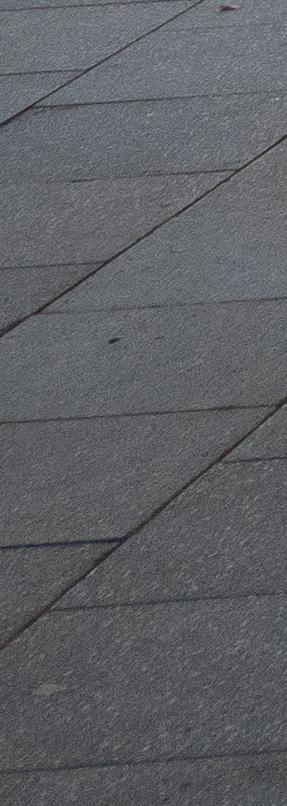
Critic Te Ārohi spoke to Massive’s Editor Sammy Carter, who’s been following student protests in the capital all year and brought us up to speed.
The Massey protests began as small graffiti tags dotted around campus saying ‘Free Gaza’ – quickly covered by uni staff. “Massey admitted that it was their staff who sprayed over them, and students were pretty off about that,” said Sammy. Although it’s Massey’s policy to cover graffiti, Sammy said that the uni eventually apologised for doing so. “They said it’s their policy to cover up graffiti, but in this context they should have thought about what that says about them.”

The next bout of protest art came when Fine Arts students were allegedly given space in their building for them to paint whatever they wished. That’s exactly what they did. The red, green, black, and white protest art covered an entire stairwell. It included 12 of Palestine’s national birds (sunbirds) for every university destroyed in Gaza, and a sketch of the university’s namesake William Massey spewing blood. Sammy was present the night they painted: “It was a lot. Like I was not expecting it to be quite that intense.”
In a feature article titled ‘The pain that drips on quiet investment’ following the protest, Sammy wrote, “It is ugly and raw. Words
By Nina Brown Editor // critic@critic.co.nz
I’d also use to describe genocide.” When Sammy arrived at 9am the following morning to catch the staff's reaction, she found the building locked – with cleaning crews covering up the art.
Before it was covered, sprawled on one wall was a quote from Massey, “As is appropriate for a university, Te Kunenga ki Pūrehoa Massey University has not taken a single position on this issue.” The students left a letter behind, addressed to the Bachelor of Fine Arts staff. It read, “There is nothing appropriate about ignoring the incomprehensible suffering of Palestinians [...] We want to know why you have said nothing.”
Earlier in the year, Critic Te Ārohi reported on an open letter that was penned by students, staff, and alumni asking for Otago University to issue a statement in solidarity with Palestine. The letter emphasised the destruction of universities in Gaza, saying, “Universities that fail to condemn these attacks can no longer claim to be genuinely committed to the pursuit of knowledge and any meaningful vision of a local and global scholarly community.”
Dunedin for Justice in Palestine coordinator and Otago alumni Rinad Tamimi, who has been integral to the group’s weekly rallies in solidarity with Palestinians in Gaza, told Critic at the time that she was “disappointed” in the Uni’s silence. National chair of the Palestinian Solidarity Network of Aotearoa (PSNA) John Minto echoed this: “In the 1930s Western institutions looked the other way to the looming genocide in Nazi Germany and the result was the Holocaust. The world said ‘never again’. We must say ‘never again’ today for Palestinians in Gaza.”
In Sammy’s feature article, she debates the stance of silence most universities have taken across the motu: “[...] [Massey] is yet

to recognise Israel’s genocide of Palestinians. And the question lingers – is it their job to?” A poignant question.
A pivotal moment in Massey’s case was when, in response to Massive’s questions following the Fine Arts protest which included whether the university had financial links to Israel, a spokesperson said, “The Massey University Foundation has $64 million invested in managed funds. Of this, within the past three months, $7,105.00 is invested in Israeli Government Bonds.”
Massive released the explosive news the same day that Massey Uni’s Provost posted an article titled ‘Opinion: A right to remain silent?’ defending the uni’s refusal to take stances on political issues. “The timing was crazy because the post was flooded with comments from people who came from our account being like, ‘Israeli Government Bonds is not silence.’ Like that is not being neutral. That is taking a stance,” Sammy told Critic.
Some have questioned the consistency of universities’ refusal to take political stances, with Massey students arguing that universities do take political stances on issues such as Te Tiriti o Waitangi, climate change, and being Rainbow Tick certified, “wondering why it can show support for the queer community but not Palestinian students.”
Critic Te Ārohi put these questions to the University of Otago, which maintains a position of “institutional neutrality.” A spokesperson answered, “We are committed to supporting Palestinian students and staff. When it comes to international conflicts such as the situation in Gaza, the university is mindful of the diverse backgrounds and perspectives of our student body and wider community. Our stance is not indifference. We see our role as providing a safe and stimulating place of learning and dialogue for students from all walks of life, including those directly affected by such conflicts.”
Commenting further “about institutional neutrality, taking a position on an international geopolitical issue is quite different from Te Tiriti, where the University has specific obligations under the Education and Training Act; climate change, where the University has obligations relating to Government-mandated targets and LGBTQIA+, where the University has legal obligations in respect of equity and discrimination.”
As for Massey, the furthest that the university has gone in response to students’ pressure has been to issue a statement to Massive on July 10th condemning the act of genocide: “Massey University condemns violence of any nature.” Sammy said she’d overheard students walking past her office in Wellington talking about the news, commenting, “Great, Massey’s condemned genocide, but they’re not actually mentioning Palestine.”
Massey Students for Justice in Palestine – one branch of a national group of student activists – are demanding that the university divests its Israeli bonds. A letter sporting 300 signatures says, “We are demanding that you put your money where your mouth is.” A Massey Uni spokesperson said it’s not for the uni to comment on what the Foundation will do with its investments, since the Foundation is a separate legal entity.
In our neck of the woods, Dunedin’s branch, Otago Students for Justice in Palestine, are continuing to put pressure on the University of Otago. The group demands that universities declare and recognize Palestine as an independent and sovereign state; disclose and divest all direct partnerships with Israel (Otago Uni has none “to the best of our knowledge”); and denounce antisemitism, Islamophobia, and all forms of discrimination.
Otago SJP are holding a ‘Stand Up for Palestine’ march from 3:30pm on Tuesday, July 30th, from the Union Lawn to the Clocktower to further their goals.
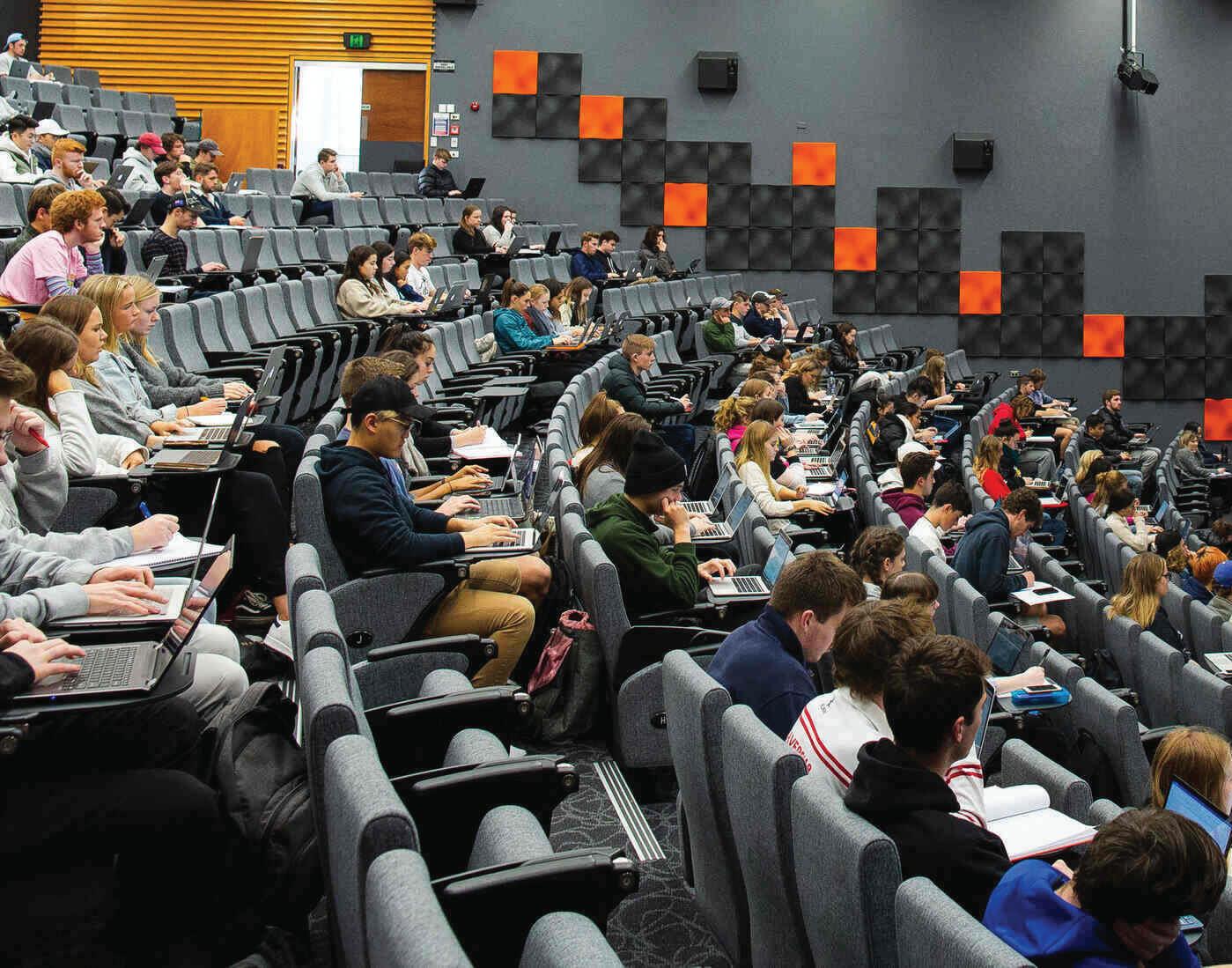
In a win for accessibility and people who swear they can’t hear without subtitles, closed-captions in lectures appear to be getting closer to reality for Otago tauira. Last week, all students were emailed a link for surveys inviting them to give feedback on a policy proposed by the OUSA Exec that would mandate lecture recordings.
OUSA Exec members Tara, Ibuki, and Stella L have been working all year to see the policy get over the line. In a soft launch for feedback, they included the question in the first semester referendum: ‘Should OUSA advocate for a new policy that will give students universal access to closed-captioned lecture recordings?’ It passed with 82.3% approval. Despite the referendum question’s success, further feedback through official university channels is needed for the policy to be actualised.
Numerous staff have reportedly taken issue with the proposed changes in their round of feedback, setting the stage for students to respond in their droves. The University’s feedback form has been open for six hours at the time of writing, yet feedback has already been rolling in hot, with around 120 responses in mere hours. Nothing like a good turf war via survey.
Most feedback thus far has supported the policy with multiple hearing-impaired, neurodiverse, and dyslexic students ardently supporting the change. The large majority argue that it will make their lectures easier to understand and engage with. One commenter said, “Audio on lecture recordings is always so fucked, hard to understand if your first language isn't English!”
Some concerns were raised by students, however. One student mentioned that if AI creates the transcripts it “won't account for complex scientific language or non-English, especially te reo Māori.” Another student said, “It may be impractical for certain smaller papers or papers with a non-standard lecture format to
By Gryffin Powell News Reporter // news@critic.co.nz
implement such a policy, so some level of flexibility would need to be considered.”
Writing for Critic’s OUSA Exec column in this week’s issue, International Rep Ibuki Nishida, said, “The Exec have been working legit all year on this policy and I think it’ll be an absolute gamechanger for students. It’ll be helpful for neurodivergence, disability, cost of living (sometimes you need to pick up a shift), language barriers, sickness, safety and even more of that nerdy yet important stuff. We just need 6000 responses and that’ll help us get the policy over the line, and hopefully in place by next year!”
Commenting on the staff pushback, many of whom are worried about attendance and educational outcomes, Ibuki said, “But I think, if anything, if every lecture is recorded it creates an incentive for these professors to work harder and make their lectures more interesting/engaging/interactive so that they are worth going to in person.”
Speaking to the changes, Deputy Vice Chancellor Stuart Brock told Critic Te Ārohi, “The University does have a lecture recording policy, however, it was last formally reviewed in 2016. There have been many changes in our context and subsequent teaching and recording practices at the University since this time. As a result, the University is in the early stages of reviewing the policy and has invited OUSA to partner with the Academic Division in the process. I am excited to be working closely with OUSA on this review, ensuring we have a strong student voice throughout the process. Prior to drafting an updated policy, the University will be looking to consult widely, giving all staff and students an opportunity for their input.”
Feedback is open until August the 6th. Critic suggests including mandatory instruction manuals teaching lecturers to make sure recordings are working.

No, the amount of green was not ogre the top
After U-Bar was SWAMPED with closure for much of the second half of first semester (cue wails from Pint Night loyalists), its semester two debut was OUSA’s very own Shrek rave – presented by yours truly, Critic Te Ārohi.
Boasting free entry and complimentary glow sticks – potentially in a bid to distract punters from the lack of real mud and trees in the ‘swamp’ – the event’s tunes from arguably the 2000s most iconic movie franchise were ostensibly frothed.
Having to compete with Castle’s ‘Ski-Apres’ themed night, U-Bar provided a slightly warmer and stickier vibe (ew). Many attendees committed to the Shrek theme, with plenty of Shreks, Donkeys and even a Fairy Godmother or two spotted. Having the Kingdom of Far Far Away be right on campus made for an unbeatable location.
It didn’t take much for U-Bar to embrace the swampiness, with the sweat and stickiness oozing organically. Ogre-green mood lighting was beaming from all sources, and a photo frame for ‘Wanted: Fairytale Creatures’ roamed the dance floor throughout the night. Naughty. The absence of Shrek’s outhouse was the only thing holding U-Bar back from 100% swamp status (although rumour has it the men’s bathroom wasn’t far off).
Despite an initially slow start at 9pm (a nice break from the Pint Night line), students truly began to live la vida loca from about 10:30pm. The DJ – apparently refusing to wear the bonnet of his gender-confused wolf costume – was spinning all the Shrek classics. The dance floor went particularly feral over ‘I’m a Believer’, ‘Holding out for a Hero’, ‘Funkytown’ and ‘Accidentally in Love’.
By Gryffin Powell News Reporter // news@critic.co.nz
To celebrate the Shrektivities, U-Bar was offering special ‘swap shots’ for $7, a questionable combination of Midori and Baileys. Critic admired the innovation, until it was pointed out by one staff member’s mum that it was, in fact, just a rebranded quick fuck shot (and apparently a favourite of hers). Indeed, one ardent attendee told a very sober Critic Te Ārohi that it went pretty hard.
Critic’s Editor Nina (i.e. Journalism’s Queen Lillian), said, “Shoutout to the chick who turned up painted green, complete with a green swimming cap.” She must’ve been a believer in a bloody good time, easily outdoing Nina’s three blind mice costume. Another unintentional attraction of the night were the bedazzled Critic sunnies that debuted at Hyde Street Party, pictured on the cover of issue 7. As for the Swamp Rave? We’ve never seen Lord Farquad look so chic.
A special mention needs to be given to the U-Bar security guards, who appeared to be going above and beyond the call of duty. Critic informally counted at least 20 people being kicked – despite there being a relatively low level of intoxication on the night. In one conversation alone, three people were frog-marched out (one actually was a frog) in the space of minutes. Could this be an ogre-reaction?
By the time midnight rolled around, Shrek bangers were gradually substituted for club classics – including ‘Club Classics’ to the delight of the girls who’d had “brat” displayed on their phones all night. ‘Mr Brightside’ managed to get all manner of fairytale creatures flooding the dancefloor for one last hurrah before the evening came to a close.
A by-election for the Finance and Strategy Officer role on the OUSA Student Exec has been called. Abby, who occupied the role last semester, bowed out of her Exec position last Monday, July 15th. Her formal resignation followed a month of radio silence, with repeated attempts to reach the Exec member failing –essentially ghosting the association.
At an emergency Exec meeting last Monday, OUSA President Keegan Wells told the Exec that Abby had left “due to personal circumstances.” She then put forward a motion for the Exec’s approval (they obliged) for a by-election for the position to be held from July 29 - 31. For those unfamiliar, a by-election is held to fill vacant elected positions outside of the normal annual election. Last year, there was one in May when the Clubs and Socs Rep announced he was heading back home to the States.
Queried on the timing of the by-election, OUSA Secretary Donna Jones said, “We need to get onto it quickly […] there has been no one in that role for a month now.” Since Abby stopped communicating with the wider Exec, Keegan had been filling the key duties of the job. Her capacity to do so on top of her usual hours, however, has been relatively limited.
Now for the question on everyone’s mind: what’s a Finance and Strategy Officer? They’re a bit like that one flatmate that handles all the bills, but for the Exec. Donna told Critic that their core responsibility is “to look after the vision of the finances.” She
Oats, no!
Rumours of a porridge thief swept the free brekky community last week after successive mornings saw the porridge stock depleted quicker than you can say “oatmeal.” Breakfast runs from the OUSA Clubs and Socs building from 8:30am every morning, but claims say that the porridge has been gone only 20 minutes in on some occasions. Students hoping to get their fill of oats at the free breakfast service have been sorely disappointed by this development.
Critic Te Ārohi snagged an interview with one student who has been eating breakfast at OUSA and then cheekily pocketing some more porridge for their lunch. Credence* said, “I love free breakfast and am a porridge lover through and through.”
He went on to plead guilty to his crimes: “The most outrageous thing I’ve ever done is taken some of the bread and made peanut butter sandwiches and put some porridge in a container, and then come lunchtime I open the sandwich and then spread the cold porridge on the peanut butter sandwich.” Credence disclosed that the combination is “quite gloopy,” but he loves it all the same.
Speaking to the breakfast shortages more broadly, OUSA Clubs and Socs head honcho Jamie Leckie told Critic, “Transitioning from a one-day-a-week service to a five-day-a-week service has presented challenges in forecasting the required products to meet demand. Attendance has far exceeded our initial expectations.”
While negative in some respects, Jamie said, “The positive side is that we are feeding more students at free breakfast than
By Hugh Askerud News Editor //news@critic.co.nz
emphasised that Abby’s replacement in the role will need to have the time to commit at least 20 hours a week in assisting with the University Union Ltd, and the Finance and Strategy Committee. While a background in financial know-how isn’t necessary, she did say that “it certainly did help in the past.”
Donna assured Critic that “studies and OUSA can work together without being too committed.” Having worked at OUSA for 33 years now, rest assured that she knows what she’s talking about. Speaking to the past successes of great Finance and Strategy Officers, Donna said that they were “in the office wanting to do the work, they just have an eye for the finances and really enjoy the work.”
In a message to potential candidates, Donna said, “This is a wonderful student association, it's a great place […] you get such good experiences from being on the Exec.” As Postgrad Rep Hanna said in her second quarterly report, “Being on the OUSA Exec is like having a family away from home.”
Nominations for the role will be open this week from Monday to Wednesday (July 22 - 24th). Voting will only be available through electronic means. The gap between the 24th and the 29th gives candidates a five-day window to campaign. Note: the Finance and Strategy Officer role is a paid position, clocking 20 hours a week. Dollar dollar bills, y’all.
By Robbie Heller Contributor // critic@critic.co.nz
ever before, with most days seeing between 80-100 students attending during the hour-long period.” You’d just better hope they came for the toast and cereal.
Ever the free breakfast cheerleader, OUSA Clubs Rep Emma told Critic, “We encourage lots of people to attend free breakfast so that it is more likely for Clubs and Socs to have the capacity to keep their funding in the future for free breakfast.” Leckie confirmed that “we are hopeful to gain additional funding to keep up with the increasing demand,” not specifying if this would include a Goldilocks buffer.
Commenting on the wave of crime her beloved breakfasts have fallen victim to, Emma stated that “hearing people sneaking porridge in their own containers doesn’t seem too bad to me as long as they keep in mind that there are people who do go to free breakfast for reasons such as the cost of living and going for their own wellbeing.” For students facing such struggles, OUSA Student Support also has food bags available upon request.
One free breakfast diehard, Georgia, told Critic Te Ārohi that it was “a way to feel social before studying for the rest of the day” and that “money saved on breakfast ingredients can be spent on coffees and other groceries.” In this way, the service had two key functions, with Emma confirming that “free breakfast is there for students to reduce the cost of living and to give yourself time to begin your day with a healthy routine.”
*Name changed.
A recent Edinburgh Realty ad campaign has raised eyebrows after students noticed it looked somewhat similar to the Capping Show’s Barbie-esque theme. Edinburgh? More like Edinbruh.
With similarities in colour palette, characters, and terminology, Capping Show members have voiced their frustration at the similarity between the ‘Get a Room’ campaign released by Edinburgh on the 9th of July, and their own work in the May production ‘Beezie’. The fact that the Capping Show blatantly mocked Edinburgh, with the show’s villain literally based on the company, does not appear to have been picked up by the property manager’s marketing department.
Speaking to the feelings of Capping show members, AJ Keables (Beezie) told Critic Te Ārohi that they were “a bit fussed about it” and “couldn’t really tell if they were piggybacking off Barbie or Beezie.” However, AJ noted that their promo video “literally looks like a rip off of the Capping video sketches.” Key similarities pointed out by Capping Show members were the use of the term ‘Scarfieland’, the fashion choices of its central characters, and the colour palette of the campaign.
The Capping Show has taken aim at Edinburgh long before now, with this year’s show featuring Glasgow Realty as the main antagonist of Beezie’s journey. Many of the jokes revolved around Glasgow Realty, leading some Capping Show members to ask if it

By Molly Smith-Soppet Contributor //news@critic.co.nz
was really Edinburgh who got the last laugh. One student, Alyssa, doubts this approach however, telling Critic, “I think they must not have seen the show as it spent majority of it making fun of realtor companies like them […] It shows how not only do they like to steal students' money, but also their ideas.”
Choreographer Ari Gepte also voiced their frustration, arguing, “They are taking away from the hard work that students put into making the show voluntarily, because after all their clients are majority students.” Third-year student Lily, who lives in an Edinburgh flat, made the connection that “potentially Edinburgh wanted to piggyback onto the successful advertising of both the Capping Show and Barbie in order to appear more relatable to the students.”
AJ also called for the company to “spend more time making sure their flats aren't covered in mould and are actually liveable rather than ripping off student productions where hiring the pink car probably cost more than my monthly rent.” While clearly a bit miffed, the Capping Show crew have taken their confusion in stride, with co-director Jack Archibald stating “imitation is the greatest form of flattery […] we’ve left a cultural impact on Dunedin.”
Edinburgh realty did not respond to Critic Te Ārohi’s request for comment in time for print.

ODT kinkshames ORC yet again
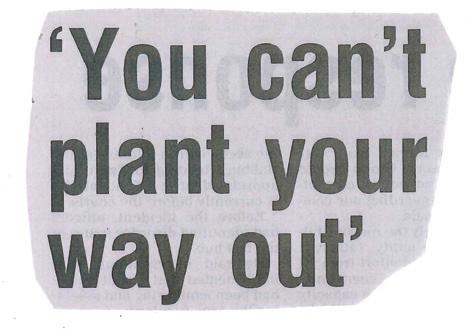
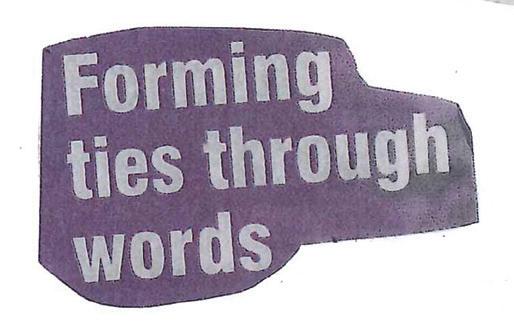


Netflix pricing fighting lonliness via
"please open the window"

obligatory mewing joke
opposite of doing a Borat impression

getting lit cos it's too cold for fuckall else


this was about Te Tiriti, idk what the fuck i expected

our remaining 20 Critic stickers
stoner's nightmare






1 I say "Countdown", you say...
2 Charli xcx kind of gig
3 A proposed Exec policy would mandate these
4 Madagascar 2 begins with tourists on a...
5 This __ that
6 Midday
7 Do this to get the treats
8 Swampy review pg
9 A fox's quality
13 Remnants of the third way to keep warm this winter
54
15 $50 bag 17 Out drinking (acr.)
18 Bogan for "cool"
19 Group in many conspiracy theories
20 "That outfit is ______" 22 JAFA metro (acr.)
23 Direction of a Dunedin valley
25 Lord Farquad is a little ____ 27 1D, singular
French summers
Marsh predecessor

"Oi"
Paddle
Takes accountability (2)
46 Breatha's spin them
49 On a price tag open to bartering 51 Home of A-listers


There are 10 differences between the two images
MASSIVE
PENGUIN
EDINBURGH
PORRIDGE
FARQUAD
EDITOR
SEASONAL
WINTER
CARIBOU
INTERNATIONAL
NON ALCOHOLIC
HOMECOMING GARDIES
RADIO ONE
BEEHIVE

NāHeeniKoero TeRerenoa(Sky) NgātiHine, Te Waiariki ki Ngunguru,Te Rarawa

Let’s cut the crap. Aotearoa New Zealand loves to brag about ‘authentic’ Māori cuisine like hāngī, boil-up, fried bread, and steamed pudding. But the uncomfortable truth is: these aren’t traditional, authentic Māori dishes. They’re struggle meals that emerged during the colonial era, when Europeans pushed Māori into poverty, compelling us to innovate and adapt to survive.

The reality is that many of these so-called traditional dishes were born out of necessity and survival. When the English arrived, they didn’t just steal land, but resources and freedom too, and both our cuisine and the land still bear the marks of this today. Māori had to make do with what was available, creating meals from off-cuts of meat, wild greens, and simple carbs – basic, filling, and designed to sustain hard-working communities through tough times. Far from flourishing culinary ventures, these were acts of survival.
The epic transformation of these humble dishes into widely celebrated cultural cuisine gives rise to important questions about authenticity and cultural preservation. When did hardship become so intertwined with our heritage? Why do we continue to romanticise it? And why are we so protective of ‘tradition’ instead of embracing flexibility?
Take hāngī, the OG air fryer, for instance. While the cooking method itself is almost ancient, the ingredients we now associate with it – like pork, potatoes, and cabbage –were all introduced by Europeans. Boil-up is another example; just a pot of basically whatever meat and vegetables could be scrounged together. As a Northland gewl, I grew up in a whānau who poured heavy cream in boil-up broth but was quick to pounce on people whose go-to mix-up included sausages. It didn’t matter whether they were the fancy Aussie Butcher chicken and rosemary ones, Sizzlers, or Cheerios – our noses immediately turned up. For us, it just seemed improper. But we were also putting down whānau who relied on the cheap, bulk buys.
It’s giving… tone deaf.
And it seems to be a universal approach. A fried bread recipe hits TikTok and the food police swarm in. They debate in the comment section over technicalities; how yeast turns it into a doughnut, or how sugar water is just straight-up “blasphemous”. Then there are the purists who preach that you must “use pūhā because cabbage isn’t traditional,” simultaneously drowning their boil-up in tomato sauce. And don’t even get me started on the ridiculous grading matrix for what makes a “good” hāngī. There must be three types of meat, every root vegetable with stuffing, fried bread with REAL butter. And you mustn't forget a drink – but not for more than
$10. Skip the umu and you’re a traitor, but too much earthy seasoning (dirt) and you’ve ruined it.
As a seasoned hāngī-maker and fried-breadfanatic, I’ve heard it all before. The soaring criticisms and demanding expectations are enough to make you toss the tea towel altogether. It’s as though we’ve lost sight of the entire point of these meals and their appeal. My point is, e te iwi: we’re clinging to traditions that never were. Our ancestors wouldn’t recognise half of the spread on the table, so how can one be so protective of a fabrication? Hongi Hika wouldn't give a second thought on whether a potato salad was warm or cold.
Confronting these attitudes often falls between the lines of “you better not” and “how dare you?” But the reality is that our kai is central to whānau because of the flexibility that comes with it. There aren’t actually any rules to making a hāngī, though it’s implied through the cooking method. Boil-up has always been quick cuts in any old pot for a fast meal, and you really can’t overdo fried bread; it's almost foolproof – and it’s certainly got more heart than instant noodles. This isn’t to say that the traditions that develop aren’t important. Most families have their own way of doing things and I’ve gotten a few growlings at home for straying from our usual methods. Mum’s favourite line “don’t tutu with the food” never gets old… at least, until we get sick of the unseasoned hāngī vegetables. To my whānau: if your tūpuna can fight at Kororāreka, you can try some rosemary.
The question remains: why are we so damn eager to present kai that originated from struggle meals as proud symbols of our culture? It may be that it’s a complex mix of nostalgia, resilience, and a desire to reclaim our narrative. In doing so, however, we risk glossing over the harsh realities that shaped these dishes. When we put such a whole-hearted claim on – let’s be honest, here – pretty bland meals and then rave about them to ngā hau e whā, it paints a particular image of where we’re at. Yes, let’s celebrate the real legacy of Māori cuisine: our ancestors’ ingenuity, the resilience, and the strength in the ability to make something out of nothing. But let’s also do better to not whakaiti our fellow Māori for how they make their fried bread. Even if they use sugar water.
The Winter Breatha’s version of a dick-measuring contest is trading war stories of how much the cold weather has fucked us over. But like your dad likes to remind you when showing any discomfort (AKA sign of weakness), “Don’t give me problems, give me solutions.” Your mates are sick of hearing about your chilblain-riddled fingers, or how pale you’ve become –purple in extreme cases. Critic Te Ārohi has compiled a totally helpful list of ways to keep warm this winter.
A tried and true beezy classic. At the height of winter, you’ll find packs of true (often blue) Dunedin beezies scurrying from one flat host to another, half-sunk boxes tucked under bare arms (a jacket would have ruined the ‘fit). But don’t be fooled! They have the ultimate protection against the chill: the alcohol blanket. Kicking in after a few brews, the alcohol blanket numbs the body to the point of simply not feeling the cold. Any alcohol works for this method, but if you’re after the sort of alcohol blanket that would actually warm you (from the inside out), Critic recommends liquor that burns – duh. Fireball, whiskey, or bourbon will do the trick.
1/10. Not warmth so much as an absence of cold.
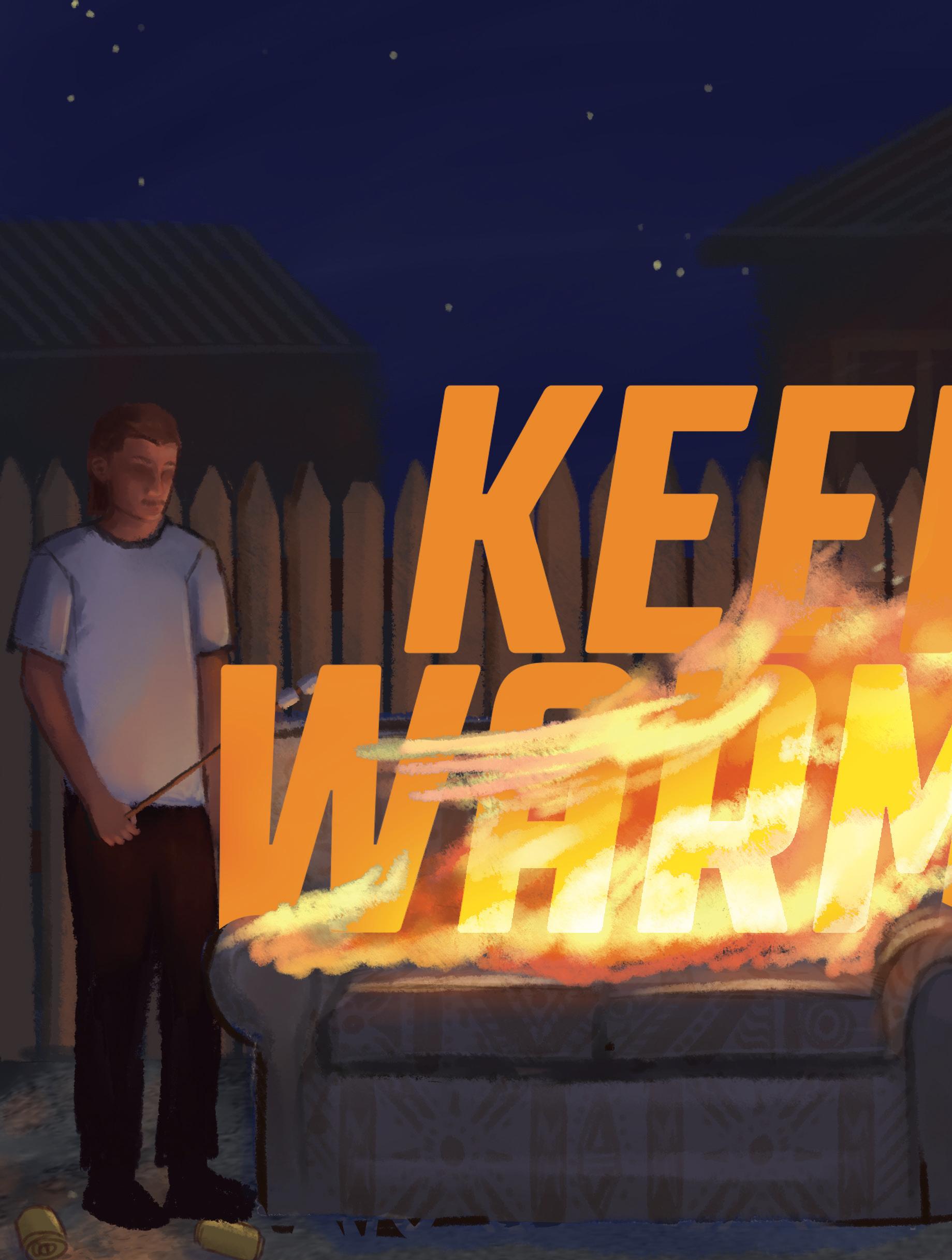

By Sam Soppet & Nina Brown
by Aria Tomlinson


There’s a reason they call it cuffing season. Practical prior planning for winter means biting the bullet and popping that question: “Will you warm my bed this winter?” If you aren’t one of the lucky few with an electric blanket, nights can be the most brutal during winter. And what’s even better than a hot water bottle? One that hugs you back – with forehead kisses as an added bonus for a different kind of warm and fuzzy. But there are downsides. As many a person will know (or virgins will imagine) having another person in your bed can have one of two effects: you either get cold as fuck toes jammed in your back, or you have your cold as fuck toes graciously warmed by your loving bedmate. It’s a give and take sort of dynamic.
WARMTH-LEVEL: 6/10. Warm in every sense of the word.
Channel your inner caveman and just start burning shit. Where do you think the scarfies tradition of burning couches came from? It wasn’t anything deeper than those poor Dunnerdwelling critters before the introduction of Healthy Homes (not that it’s made much of a difference) burning anything they could get their hands on for warmth. The modern day equivalent looks like you and the flatties either crowding around the oven, rotisserie-chickening yourselves before the heat pump during the hour of power, or burning copies of Critic if you get desperate. It’s okay, we understand. But only if you’ve read the whole thing first.
WARMTH-LEVEL: 7/10. Don’t burn yourself.
You’ve been meaning to host your red card all year, and frankly you’re fed up with your mates complaining about how cold they are all the time – whilst refusing to use their heat pump. Now’s your chance to kill two birds with one stone: stage a heat pump lock-in. It’s exactly what it sounds like. A twist on the classic lock-in, but adapted for seasonality, pull a red card locking all your whiney friends in one room together with the heat pump on blast to sink a box together. It’s sort of like a sauna, but instead of sweating out the toxins you’re just pumping them right back in. Sounds like hell (and it definitely will be) but hey: at least Hell is warm.
WARMTH-LEVEL: 10/10. But at what cost?
Your academic era starts now! Why go home to an environment that's cold, damp, and just so full of distractions when you could kick back in Central with that sweet, sweet air-conditioning, and grind out all your assignments for the semester in one go? Then all you have to do is park up on one of those big comfy armchairs, watch Netflix, complete the Critic crossword, and mindlessly scroll Tinder because you thought you saw your flatmate's boyfriend on there and wanted to make sure it wasn’t him, and definitely not because you are actually trying to cuff for warmth. Extra for experts: stay overnight to really maximise your tuition fees’ value for money. Never leave. Central is your home now.
WARMTH-LEVEL: 7/10. Comfort at last.
The OUSA Sauna is a hidden gem on campus. It welcomes those brave enough to enter a room relatively unclad and sweat like a so-and-so (not saying it) in a playground. But do remember to take breaks. Uncle Google says it’s rare, but people have died in saunas, and there are FAR cooler ways to go out. Scoop some snow and ice off the ground before heading in to keep your water bottle cool. The battle against frostbite switches up to one against heatstroke in this method. Seriously, though: please don’t actually do this, OUSA would kill us.
WARMTH-LEVEL:
11/10. Your corpse will be warm for days.
Like Happy Feet, but Crappy Heat. It’s time the flatmate with the biggest room who thought scaled rent was “unreasonable” paid their dues. Grab your other flatmates and move in for the winter. Huddle for warmth in one bed, Charlie and the Chocolate Factory style, or like you’re one of those swaggy little tuxedoed birds from a David Attenborough documentary. And much like someone who would wear a tux at an event with a semi-formal dress code, you can sublet the other rooms while you’re at it! People who say winter is expensive just aren’t thinking enough outside the box.
WARMTH-LEVEL:
4/10 ‘cause your mate keeps muttering “no homo” from the other side of the bed.
Ok, this is actually a serious suggestion, so if you are gonna do any, probably start here. Bubble wrapping windows acts as a DIY double-glaze, adding an air gap to the windows. If you’re missing curtains anywhere in the flat, these can be doohickeyed up out of broomsticks and blankets. Obviously windows should have curtains, but they can also work to isolate the parts of your house that don’t need warming. A blanket in the middle of the hallway also conveniently works as a sound-barrier between you and the flatmate who cuffed for warmth. A rolled up towel at the bottom of any doors to outside or rooms that don't need heating also works a treat!
WARMTH-LEVEL: 7/10. DIY, it’s in our DNA.
Not to sound like a grandma but fuck – if you can’t say it in the height of winter in the cold pit of Dunedin when can you? – I love tea. The English have not often gotten things right, able to be found smackbang in the centre of any major issue in the world, but in this instance they’re bang on the money: there’s nothing that can’t be solved by a good cuppa. Situationship couldn’t commit to warming your bed this winter? Console your broken heart with a honey chai. Need a subtle caffeine boost to get through the mid-afternoon slump, while still being able to get your Z’s at night? Brew an Earl Grey. Hands frozen stiff on your laptop keyboard? Thaw those bad boys out with a steaming green tea.
WARMTH-LEVEL: 4/10. Be prepared to pee a lot.
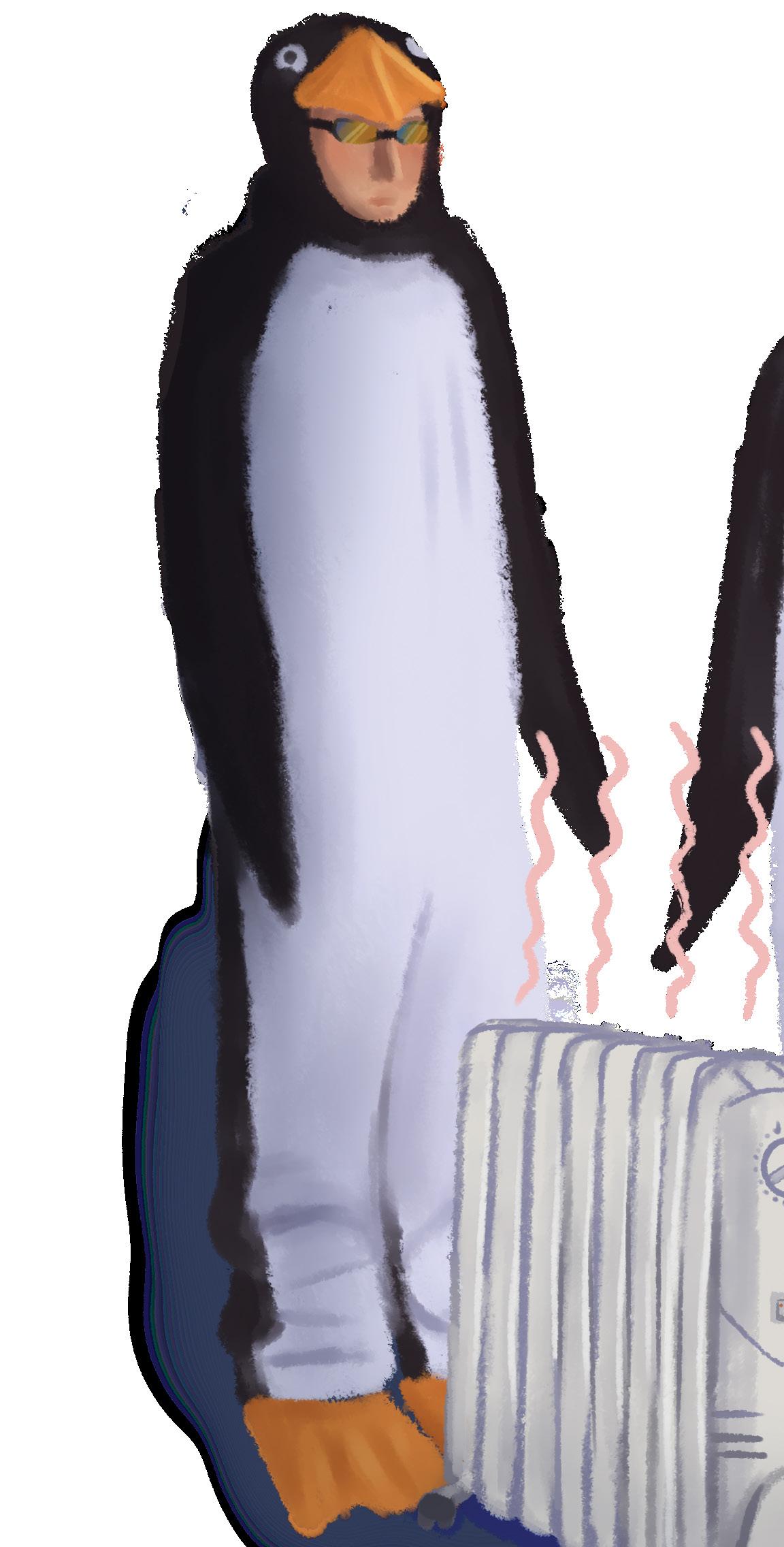

It’s not just the kids who yearn for the mines. You see it on Instagram, TikTok, and Facebook. The latter is probably from your uncle sharing links in an attempt to invalidate your “useless” degree because “people your age are making six figures in the mines and you are just bumming around on the government's dime”. What he doesn’t mention is they have to live in a fucking desert like its the biblical times. In all seriousness though, going to the mines is a solid life plan, with many a Year 12 dropout heading off to do an apprenticeship in the hopes of stacking their bread in the red dirt. Another bonus is that it is basically 20+ degrees year round, even at night, which in summer climbs to high 30s. It’s basically the bogan version of people who winter in Europe for skiing.
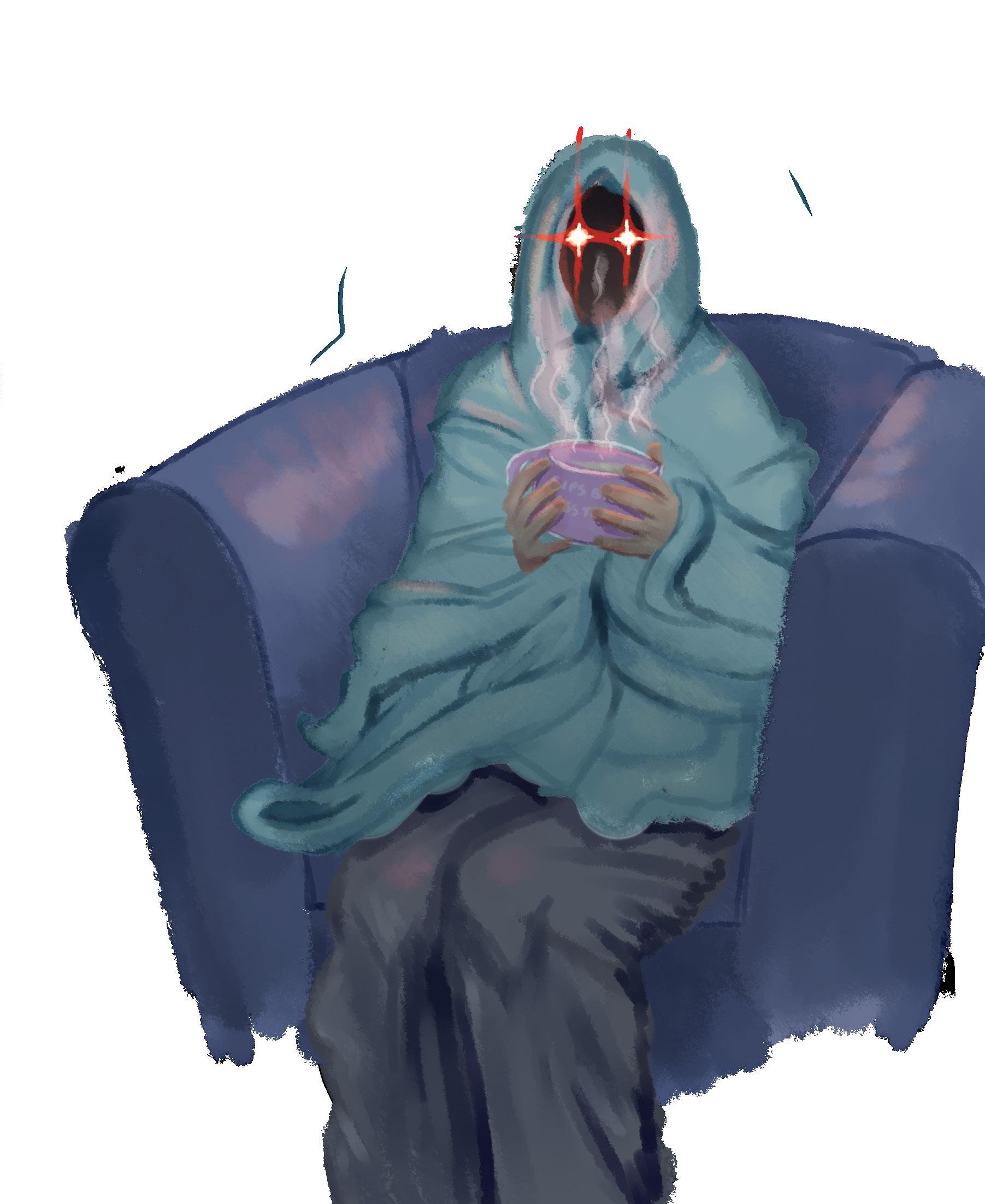
7.5/10. Points deducted for contributing to climate change.
Match the Critic Te Ārohi editorial team member to their answers. The first to send a pic to critic@critic.co.nz correctly matching each wins a Critic cap!
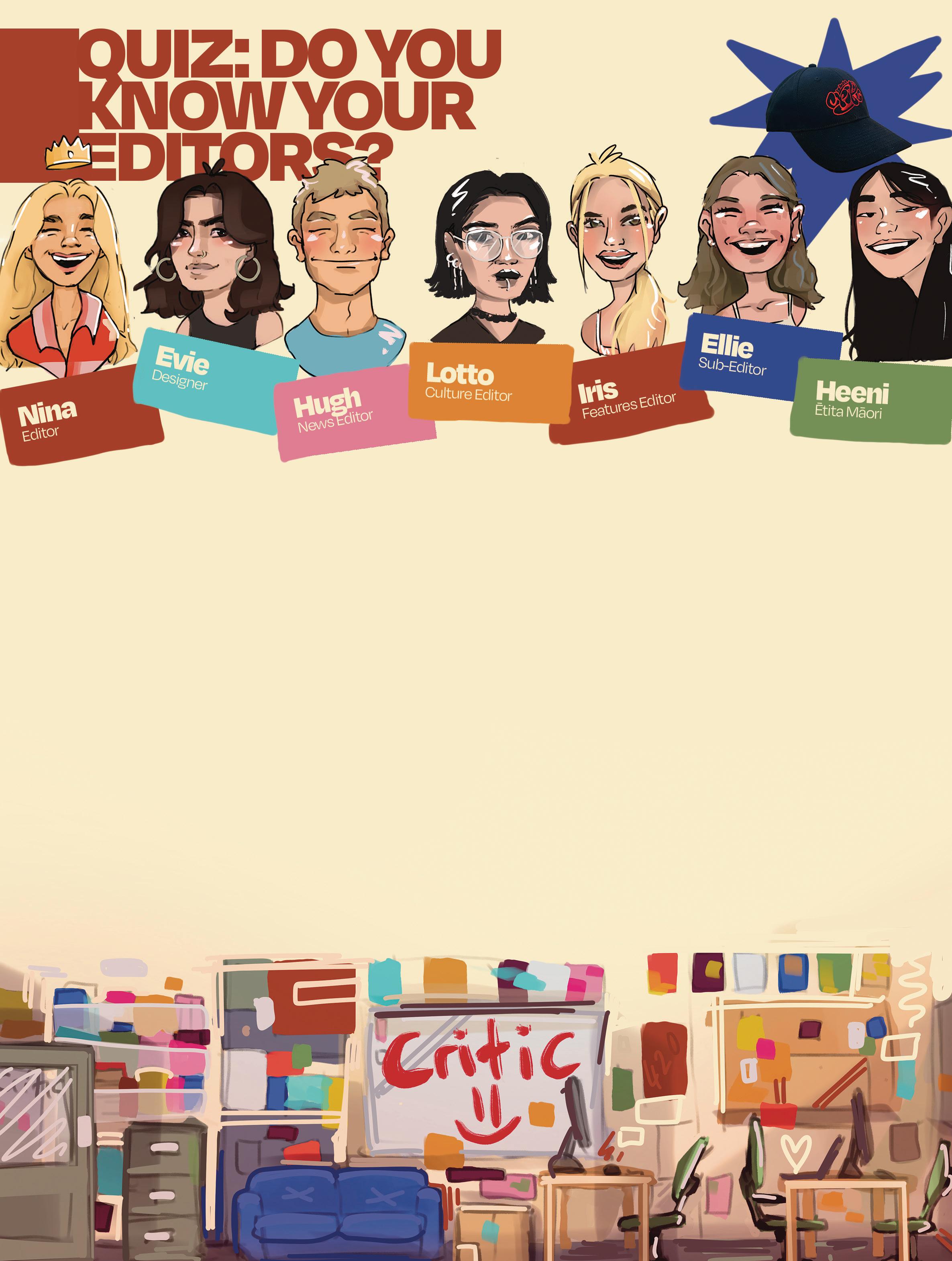
Coffee order:Peppermint tea
Depressionmeal:Anythingwith tomato sauce
Guiltypleasure:Repostingmyentire Tiktok FYP
Deepdarksecret: I still eat raro from the sachet
Māori Battalion
Ranttopic:Ruapekapeka or the 28th
Bedtime: After the Sims
Favouriteunipaper: MAOR208 or INDS307
Coffee order: Hot chocolate
Depression meal: Creamy Caramel Whittakers (but I also eat this when I’m really happy)
Guilty pleasure: Gossip (guilty)
Deep dark secret: Am an ODT op
Rant topic: ‘The Great U-Bar Conspiracy’ or any conspiracy for that matter
Bedtime: 11pm
Favourite uni paper: RELS336: Buddhism, State, Society
Coffee order: Latte
Depression meal: Bag of RJs liquorice
Guilty pleasure: Pop culture gossip
Deep dark secret: Dates a Castle breatha
Rant topic: Classism
Bedtime: 10pm (or 3am on night shift)
Favourite uni paper: LAWS351
Climate Law and Policy
toMostembarrassingthingyou'vedone keepwarm?
Turned the oven on andleftthedooropen
Coffee order: Oat flat white (or caramel latte as a treat)
Depression meal: Burger King rebel whopper at John Wilson Drive
Guilty pleasure: Y/A romance
novels
Deep dark secret: Lowkey struggle to read analogue clocks
Rant topic: Potatoes
Bedtime: 10pm
Favourite uni paper: PHIL235
Environmental philosophy
Most embarrassing thing you've done to keep warm? Cuffed a boyfriend three winters running
Most embarrassing thing you've done to keep warm? Guilt tripped my mum into filling me a hot water bottle
Coffee order:Extrashotsoywhatever Depressionmeal:3airfryerhash browns
Guiltypleasure:PsychoanalysIng strangers
Deepdarksecret: Still kinda scared of the dark
Ranttopic:Anyandallbodilyfluids
Bedtime: Favouriteunipaper: CELS191 or Forensic Bio
toMostembarrassingthingyou'vedone keepwarm?
Wanked with a dildo warmed under a hot water bottle
Coffee order: Hot chocolate
Depression meal: Whittaker’s Creamy Caramel
Guilty pleasure: Spotify stalking
Deep dark secret: Phobia of almonds Rant topic: The underappreciation of humanities subjects
Bedtime: 9:30pm
Favourite uni paper: GEND210 Gender, Crime and Justice
Most embarrassing thing you've done to keep warm? My mum knitted me mittens
Most embarrassing thing you've done to keep warm? Wear a blankie as passenger princess
Coffee order: Oat Latte
Depression meal: Air fryer hash browns
Guilty pleasure: $10 Dispensary
salads
Deep dark secret: Expired passport ID (I’ll get my learners at some point)
Rant topic: Polytech > Uni
Bedtime: 12pm
Favourite uni paper: DK735001
Design Studio Major
Most embarrassing thing you've done to keep warm? Been stingy to the point of layering multiple jumpers in the flat rather than paying for heating
Winter is objectively shit in Dunedin. Flats are cold and damp, and icy roads and footpaths do their best to take you out on your walk to the library. Finding your olive oil frozen solid in the flat pantry or the $100 power bill from your flatmate's heaters hardly sparks joy. In a season with seemingly so few redeeming factors, why not escape the city and embrace the mountains?
Aotearoa New Zealand has some of the most accessible skiing in the world, and Dunedin sits right on its doorstep. With plenty of student deals right at your fingertips, skiing (or snowboarding, pick your poison) will never be cheaper or more accessible than right now. The Otago University Snow Sports Club Exec has the top tips and cheeky tricks to help you fall in love with winter this season.
Without a solid plan, skiing can be an expensive, unenjoyable and ego-crushing experience. With the right strategies, however, it can make for some of the best memories of your university experience.
1. Book accommodation and passes in advance to ensure you can simply turn up and be ready to go. Backpackers, holiday parks, and campgrounds are a great go to for a cheap bed. (Jasper’s top tip: Avoid the long, cold walk home and book accommodation close to a pub!)
2. Rent ski gear before you head up the hill to avoid spending half your day trying on boots. Both Unipol and Beggs Ski Shops offer affordable student rates for rentals. They stock everything from skis and snowboards to outerwear – not to mention you get an even better discount when you join OUSSC! You absolutely don't need to be kitted out in brand new North Face jackets, but thermals, fleeces, and waterproof layers will make your experience so much better. (Peter's top tip: Invest in a pair of comfortable boots. You can be in jeans and a hoodie on skis from the ‘80s, but if your feet are sore you will not have fun)
3. Bring your own food up on the mountain. Much like an airport, the cost of on-hill food ranges from an arm and a leg to your firstborn child. (Clay’s top tip: A New World roast chicken and buns can feed you and your friends for days!) (Slime’s top tip: Big duopoly doesn’t want you to know that you can actually check out a whole rotisserie chicken as kg carrots nz!)
If you've planned properly, you should show up to the hill ready to go straight up the lift.
First-timers: If it's your first time, take a lesson! Either pay for a first-timer lesson or find a keen friend to teach you with the promise of a drink on you at après (more on that later). (Natasha’s top tip: invest in a lesson from a qualified instructor! You'll progress far quicker and progression is fun!). OUSSC runs a learner’s trip with qualified instructors and freestyle coaches if you’re keen to upgrade your steeze.
If you have skied before: Remember to keep within your ability, especially if it's been a while. Those big jumps underneath the chairlift look awesome when
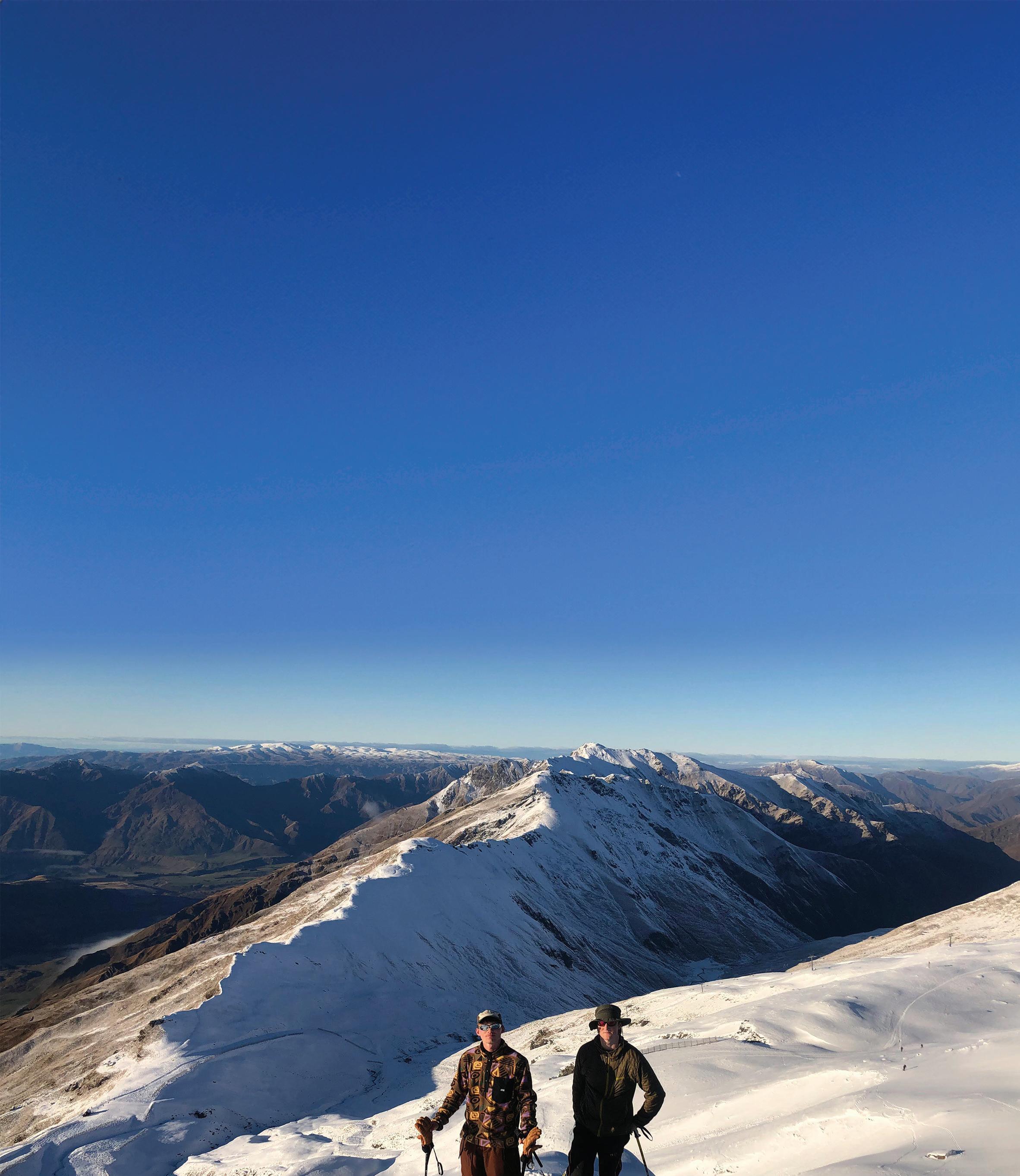
the pros hit them, but unless your name’s Nico Porteous, you're probably not ready on day one. (Ben's top tip: Have a look at slopes or features you want to ride before ripping down them. A large rock or small child in a landing is a nasty surprise)
Make the most of your time on the slopes! But if you're feeling sore or tired there's no shame in taking breaks. Skiing beyond your body's endurance will only lead to a short trip back to Dunedin, courtesy of a medical helicopter. (Amelia's top tip: Ski lodges are a great place to curl up with a good book, and those helicopters aren't as fun as they sound!)
Après-ski is an art in itself. Finishing a day on the slopes with a beer and a boogie is a fundamental part of the skiing experience. There's no need to dress up, either, as the standard après uniform is whatever you wore up the mountain that day. Keep in mind that you'll be dehydrated from the exercise and altitude when indulging in some bevvies, making you a cheaper drunk than normal. (Gabby's top tip: A true skier should be able to party harder than everyone else and still get up and shred in the morning, so pace yourself!)
A few casual comments about the conditions at the pub will show your mastery of the sport and label you “core as”. Examples include: “The snow was a bit dry/sticky/heavy today” or “Wow, it was a good day to be on-piste.” You don't have to even remotely know what you’re talking about, but everyone will probably nod and agree anyway. (Max’s top tip: Ask someone if they prefer skiing or snowboarding, and then agree or disagree with their choice depending on how attracted to them you are)
Sliding on snow is way more fun with mates. OUSSC is a fantastic community of skiers and boarders who want to share the aroha! The club runs trips to heaps of different fields around the country and is full of qualified instructors who want to see you shred like Zoi Sadowski-Synnott. Trips are relatively cheap, including travel, accommodation, food and 50 new friends! So get out there, get involved, and fall in love with winter! (Gwen’s top tip: There's lots of unlocked, and unprotected by security, hot tubs in ski towns! A sneaky dip is the perfect way to unwind at the end of a trip.)

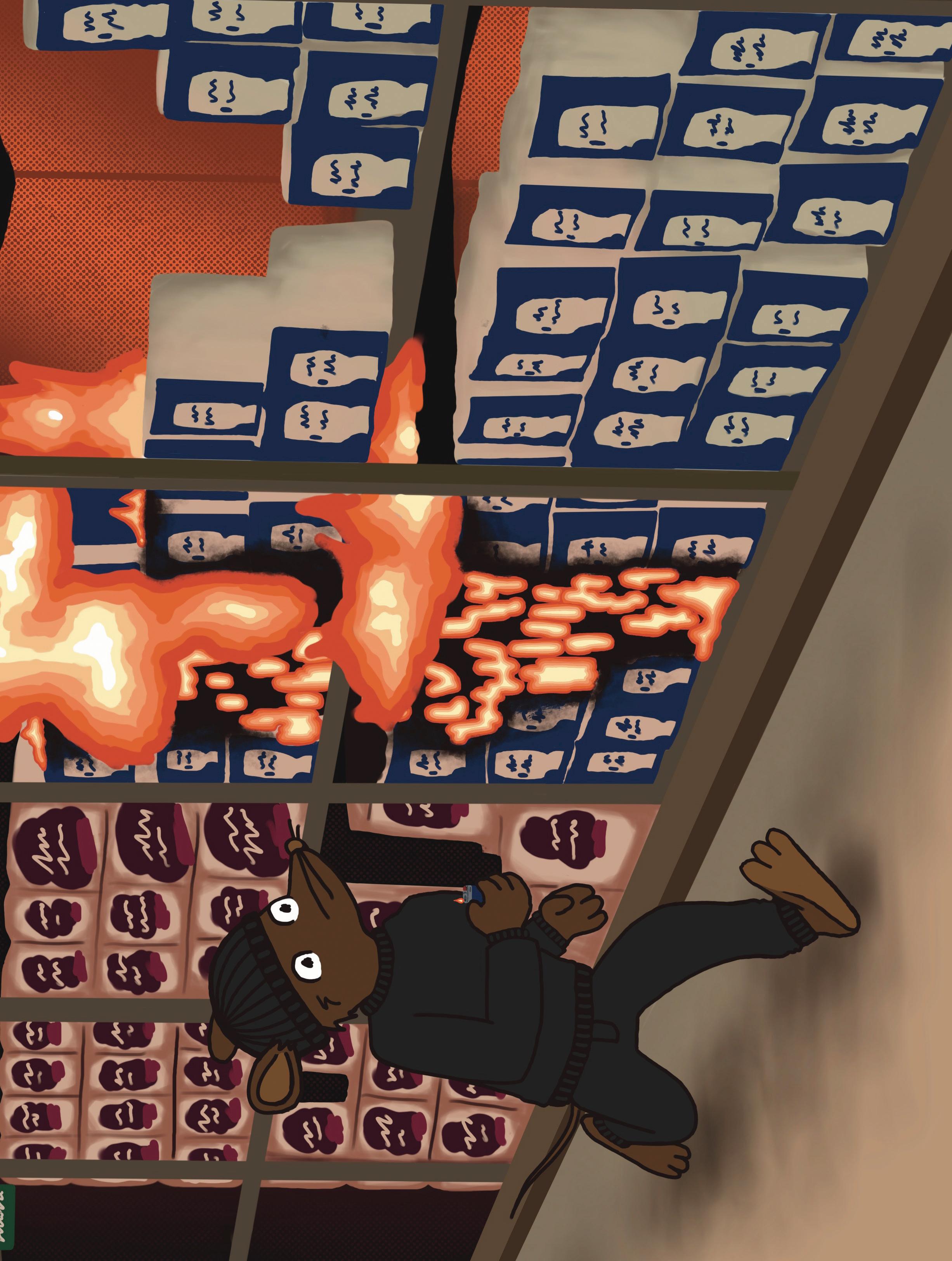

Dunedin winters are harsh on bills, the body and the brain. The days shorten, showers lengthen, limbs stiffen, and –in the worst cases – eyes deaden. For freshers cosied up in residential halls, it’s not so bad with free heating and regular hot meals. The bitter bite of winter you most experience is in the rush between lecture theatres. But then: second-year hits, and so do the winter blues.
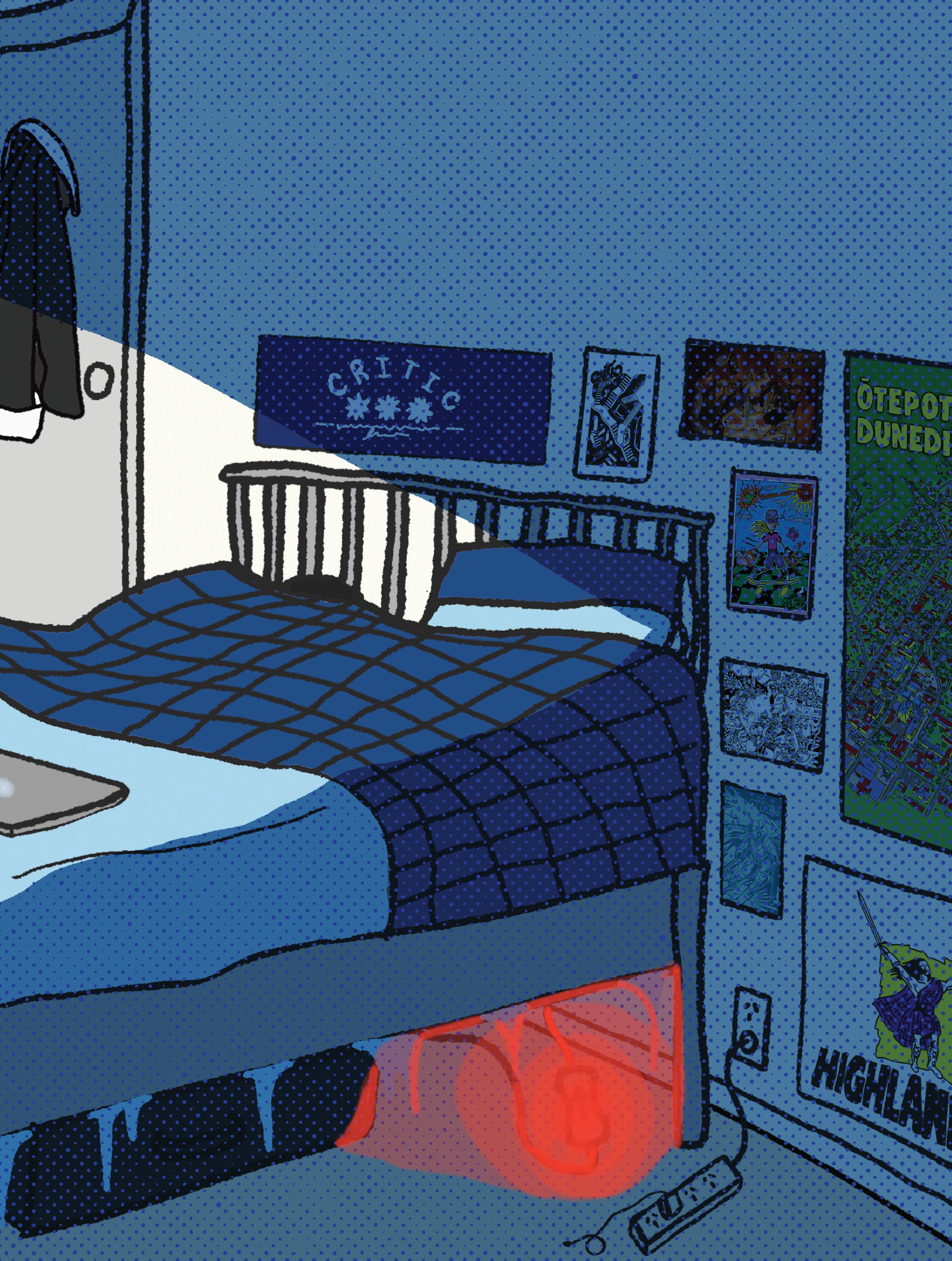
Winter blues describes the low mood that numbs the student population in the colder months. Critic Te Ārohi spoke to students Alex* (she/her), Charlotte (she/her), and Jordan (they/them) about their personal experiences with the winter blues and how student life contributes to it, the difference between Seasonal Affective Disorder (SAD) and a case of the blues; as well as Student Health’s advice on getting through it (the SparkNotes version: put face in sun).


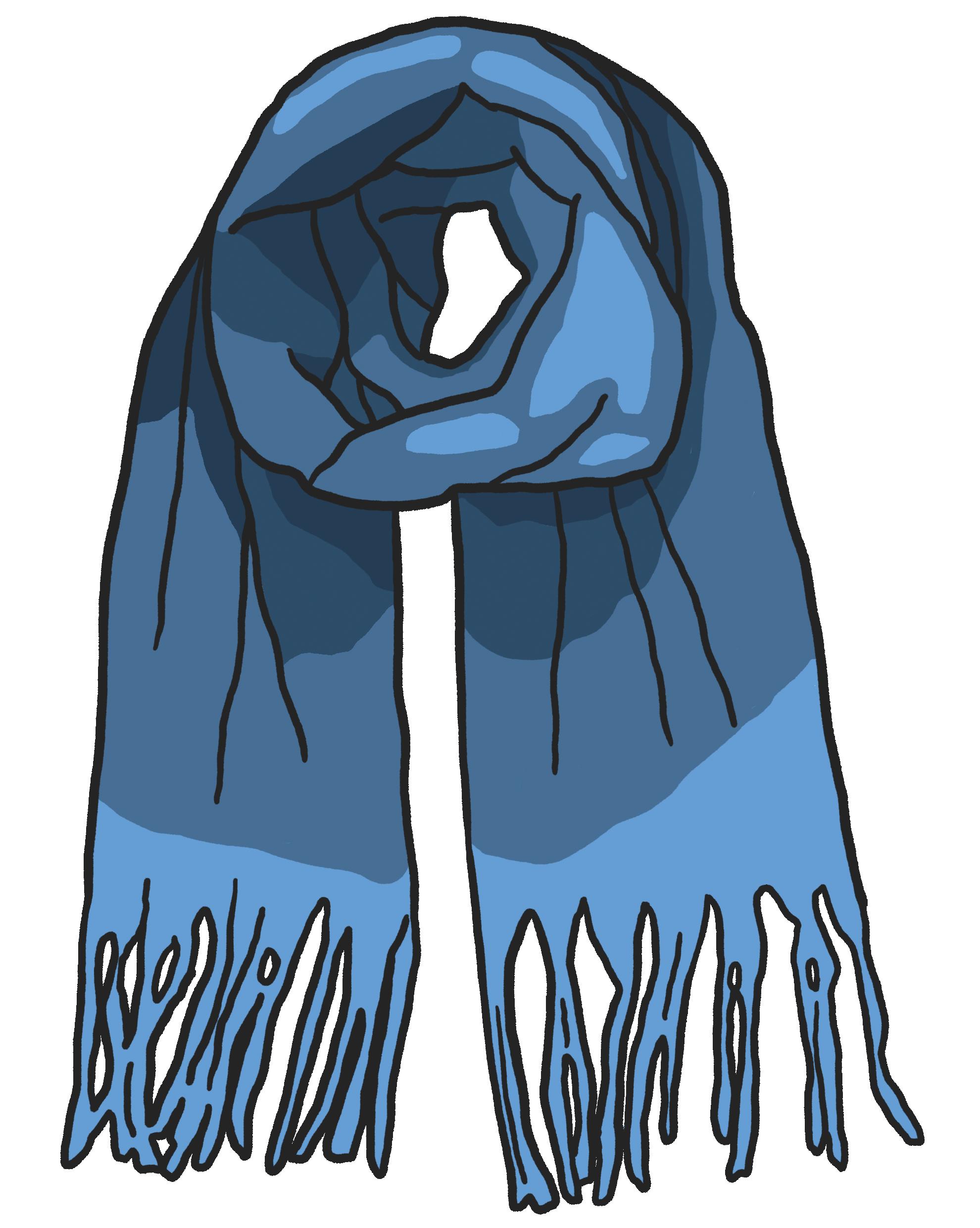
Charlotte is a postgrad student from England who has felt what she called “seasonal sadness”. Speaking to Critic in August of last year, she said she’d felt “half of her full self” during winter. Charlotte said, “At the moment, I'm in a really good place. I love my course, I love my flatmates, I love my friends. I’m at a really good part of my life. But I feel like for the past few weeks I've been feeling down for no reason. Like when I wake up I just feel sad. I don’t know. Nothing is triggering my sadness, the only thing I could think of is the fact that it is cold and miserable.”
It was a pattern she’d recognised: “Every year I kind of hope, ‘Oh, maybe this one I won’t experience this seasonal sadness.’ But every year I’m proven wrong, and I do. Obviously I’ve moved halfway across the world and I thought it might be different, but winter is winter.”
And winter in Dunedin is another beast entirely, it seems. Charlotte reflected on the warnings she’d been given prior to moving to Dunedin – warnings she’d dismissed. “I was like, ‘I’m English. I can deal with that. It’s fine. I know what cold is like.’ But in Dunedin it seems like people do not believe in
insulation or radiators, so there is no escape from the cold. So I just lie in bed with my electric blanket on. I’m like tied to it and I can’t get out of bed because I’m fucking freezing.”
Flatting on Hyde Street at the time, Charlotte described one instance where she’d been annoyed to come home to find her flatmates had left the front door wide open, only to discover that, if anything, the inside of her flat was colder than outside. The cold, combined with the fact that her room got “like no light at all”, meant that she’d found it difficult to make the five minute walk to campus some days. Even her succulent plant died because of the lack of sunlight. “And also because I probably overwatered it,” she sheepishly admitted.
Winter used to be Alex’s favourite season. That was before she moved from her home in Taranaki (crowned the sunniest region in New Zealand in 2022) to study at Otago Uni, where she lived in North Dunedin for six years. “I used to think winter was my favourite season, which seems silly now looking back at it,” Alex laughs.
Alex puts her change in attitude mainly down to the lifestyle of student flats. “I kind of realised that at home you have like winter perks of having a fire to snuggle up to, you get the hearty meals – you’re warm the moment you’re inside. And so it’s, like, snuggly. You get all those nice things […] but then in Dunedin, all of that’s kind of taken away. When you come home, it’s not warm. It’s cold until the hour of power hits at 9pm when you get to snuggle up to a 30 degree full blast heat pump that just kills your skin. And you’ve had green curry for the fourth time that week, and there are no pets.”
The hour of power rule that so many of us abide by is one that Alex has come to dislike. “I hated it. I think there’s no worth in having a heat pump on at 9pm at 30 degrees at full blast for an hour. You’re basically turning [the flat] from freezing cold and uninhabitable, to super hot and dry and uninhabitable. Some people love that blast of dry air, but I just think it’s awful. I actually couldn’t be in the room when it was on.”
In Alex’s view, if you feel like you do suffer from a case of the winter blues, “it’s worth investing those few extra dollars – especially when you disperse it amongst your flatmates – to actually have a warm environment. Like, even if it’s just warm enough that it’s manageable when you’ve got a hoodie on, you know, rather than having to walk around in a puffer jacket.”
Having left Dunedin, Alex muses that flats now might have a little more heat retention than when she was studying here because “technically they aren’t supposed to be draughty anymore […] but that could just be wishful thinking.” She’s referencing the Healthy Homes Standards that came into effect in 2022 with baseline requirements for heating, insulation, ventilation, moisture and drainage, and draught stopping in rentals. Basically, your landlord has to ensure your flat is liveable. However, considering reports that only 58% of homes passed compliance checks between May 2022 and 2023, Alex might be dreaming after all.
As with most other negative aspects of student life, the winter blues are “generally accepted in Dunedin,” says Alex. “It’s seen as part of the student experience, you know, like the [poor state of] flats are accepted [...] It’s [considered] a completely normal process. It kind of sucks.”

If you’re feeling down in the frigid trenches of North D, more often than not it’ll simply be a case of the winter blues. However, it’s important to distinguish between the winter blues and Seasonal Affective Disorder, a form of depression associated with changing seasons.
Jordan, a third-year student at Otago, was diagnosed with Seasonal Affective Disorder in their final year of high school. After successive healthcare referrals – bouncing from a school counsellor, to a doctor, and finally to a psychiatrist – Jordan was told, “This is more than winter blues.” They describe SAD as a weight that settles on top of pre-existing mental health conditions and circumstances: “It is just its own separate thing that makes life that little 10% harder.”
A common misconception about SAD – and depression in general – according to Jordan is that it’s about sadness (which the acronym only reinforces). “It’s not feeling sad,” says Jordan. “It’s about not wanting to feel sad. So when you shut down one emotion, you’re shutting down every emotion – and that’s what depression is and that’s similar to Seasonal Affective Disorder. Rather than, ‘Oh, I’m sad ‘cause it’s cold,’ you just don’t feel anything. It’s a very numbing kind of thing.”
However, Jordan can find humour in the irony of the acronym. “I just think that it’s hilarious that it’s called SAD. They nailed it with that one,” laughs Jordan. They compare it to ACHOO, a syndrome characterised by uncontrollable sneezing when exposed to sudden sunlight. Jordan says, “I think that’s just fun, and even thinking about that will make you feel better.”
Scientists have been unable to pinpoint the exact cause of SAD. However, all signs point to a lack of sunlight as being the biggest culprit – making Dunedin the perfect environment for the disorder to flourish. On the shortest day of the year, Dunedin sees an entire hour less sunlight than Auckland. Students likely receive even less sunlight, and not only due to nocturnal habits. North Dunedin – the heart of Studentville – sits in a shadowed bowl, surrounded on either side by Mt Cargill, Signal Hill, and Māori Hill. This, coupled with the general greyness of Dunedin winters, doesn’t make things easier for those with SAD. Jordan explains, “The sun is so important to me ‘cause waking up is hard enough a lot of the time. When you just see grey, it does take a toll on you. So the few days in winter or even autumn when you can see the sun, you immediately feel a lot better.”
Winter blues will often be rooted in the poor flat conditions of the average student. But for Jordan, who has lived in Dunedin their entire life both at home and in a student flat, it makes little difference. “No matter the quality of housing, that doesn’t really have an effect. I’ve lived in warm houses, I’ve lived in cold houses. It’s still all the same kind of thing.” However, Jordan can see how it would be a shock to the system moving here. “I do think Dunedin is kind of like a culture shock when it comes to weather and just general location. Everything here is very grey in terms of colouring as well. All the buildings are very old and nothing’s really that bright [...] and it’s quite small but isolated at the same time. It’s kind of a weird city,” says Jordan.
Not only is the environment different, but the academic pressures of university puts an additional burden on students’ shoulders, with Jordan pointing out that they didn’t notice winter blues to be as much of an issue during high school. “In terms of Dunedin and student culture, there is a
tendency to trap yourself inside because there’s pressure of studies and all these other kinds of things,” says Jordan. They explain that the cold will make students feel even more inclined to “hibernate”, creating a vicious cycle of isolation from things that’ll help – such as putting your face in the sun.
Student Health sees an “ebb and flow” of student traffic, their busyness matching the rhythm of the academic year, according to mental health nurse Phil Newman. Outside of the obvious peak in students going to Student Health





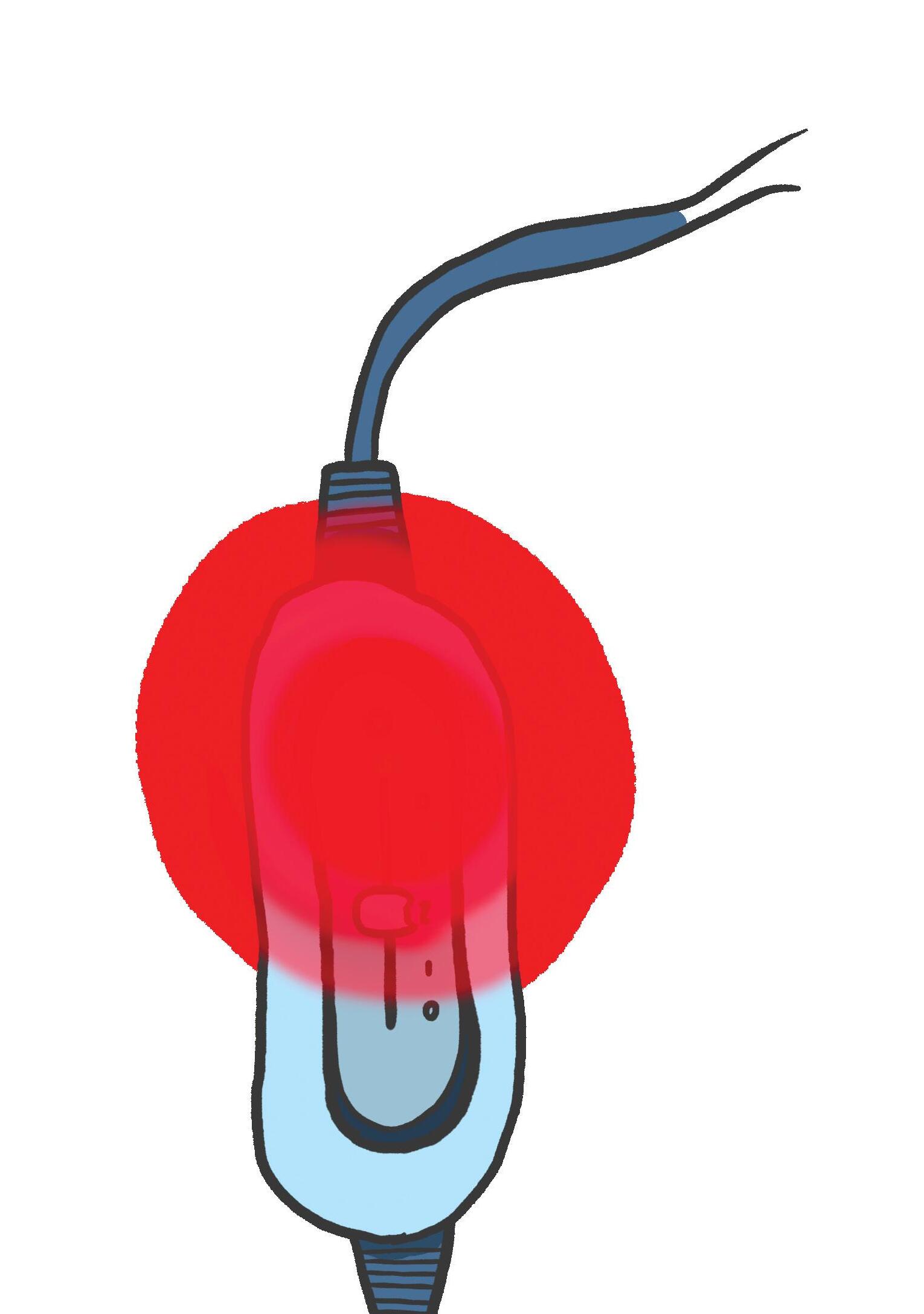

But while Phil appreciates the comparative openness of students to talk about mental health compared to adult clients who are often forced into counselling, he says that there’s also a downside. Both Phil and his professional peers have noticed a growing tendency for “normal experiences” to be pathologized, where a preference for tidiness is OCD, energeticness is ADHD, and the winter blues is SAD. “So they'll have something bad happening in their life and they'll talk about being depressed, but actually they're not necessarily depressed. They're just miserable because something shit's happened in their life,” says Phil.
In winter, the shit thing that’s happening in students’ lives is just that: winter. “[Winter is] a time when naturally we are programmed to hibernate, so it’s always going to be a struggle for us. It’s a time when we’re supposed to be just curled up in a cave under our fur blankets with the fire going, not going out much [...] That’s why we want to eat more in winter and why we just want to hide in bed all the time, but we can’t do it,” Phil says. As tough as it is, the unfortunate reality is that we still have to get on with our lives despite having those urges. This is especially true for students, whose end of semester exams coincide neatly with the beginning of winter.
Phil says that Student Health will not necessarily diagnose SAD specifically since they’ll “see a lot more students at this time of year that feel pretty down [...] They just feel more bogged down. The weather’s crap, there’s just less energy, less motivation to do things, and they maybe get into a downward spiral.” Speaking to the experiences Charlotte and Alex described of student living situations, Phil says, “It’s notorious in Dunedin that most of the flats are pretty crap. You’re living in a cold, wet flat in the winter, there’s mould on the windows, you can’t get warm; it’s gonna make you feel pretty shit […] It definitely is an issue, but realistically we can’t change the weather. It’s something you have to kind of learn to live with.”
We can’t change the weather, nor the sun’s orbit. While the battle against the cost of living crisis and Dunedin’s poor standards of housing continues to wage, what can you do if you’ve found yourself with a case of the blues this winter?
Phil tells Critic Te Ārohi, “When we’re talking about [SAD], it is not really too dissimilar to depression – it’s just that it’s depression that’s triggered by a particular time of year.” In terms of how to combat it, then, he recommends thinking about common ways to alleviate low mood: “Those basic building blocks.” Things we all know we should be doing, but can find it harder to dredge up the motivation for. “When it’s cold, wet and damp, you might not want to go to your gym class, you might not want to go to your class, you might not want to go hang out with your mates because they live down the road and you’ve got to go out in the rain to do it [...] But those things are really important because you’re connecting with other people, which helps to keep your mood in a good place.”
Seasonally specific, vitamin D supplements (AKA the “sunshine pill”) can be a big help. Student Health doctors will regularly prescribe vitamin D for someone presenting with depression, according to Phil: “If they start on antidepressants, they’ll also start on a vitamin D supplement.” The prescription stuff is a bit stronger, taken
monthly, but a daily version of vitamin D is available at most supermarkets and pharmacies as well. “So in addition to the usual stuff you do for depression, that probably for a student is the most cost effective additional thing you can do,” says Phil.
Both Alex and Charlotte vouch for the benefits of vitamin D supplements. Alex was on the prescription stuff for a bit, and found herself surprised at how much it helped: “It’s weird, ‘cause I don’t trust vitamins. But just generally, the next day I would feel happier. It’s hard to explain it in any other way, but just a little more vibrant.”
Charlotte agreed. She said she picked up a bottle in New World a few days before speaking to Critic, recalling what a classmate had said about the importance of taking vitamin D – especially in Dunedin given the diminished sunlight hours. “I was like, ‘$13 for happiness sounds okay,’ so [I] chucked [it] in the basket. I’m on day two of vitamin D supplements and, to be fair, I am actually feeling better,” she laughed. “It’s definitely nothing to do with vitamin D, I don't think. I feel like that’s too soon. But it’s a promising start."
Since the underlying cause of SAD is lack of daylight hours, those who are diagnosed with SAD are recommended to invest in what is called a lightbox. It’s pretty much what it sounds like: a light-emitting box you sit in front of for maybe half an hour a day to make up for the lack of sunlight. But they’re like $400 and, as Phil pointed out, that’s “not necessarily as much of an option for students on a tight budget.” Jordan isn’t a fan, either, explaining, “No, it’s not nice. I don’t think it would ever be a replacement for the sun, ‘cause the sun is about warmth and colour as well. It’s not just light.”
On the rare occasion that the winter sun shows its face, everyone Critic spoke to recommends making the most of it. “That’s kind of the budget version of a lightbox,” says Phil. Jordan’s therapist advised them to wake up at sunrise, letting their day be structured around absorbing as much sunlight as possible –like a sunflower. Alex seconds this, saying, “If it’s sunny, definitely go outside.” Perhaps that’s why all of your friends in Europe look so happy, with smiles and sun-kissed faces. And maybe you should block them. That’s what Charlotte did, anyway: “I was like, ‘I don’t want to be seeing that.’”
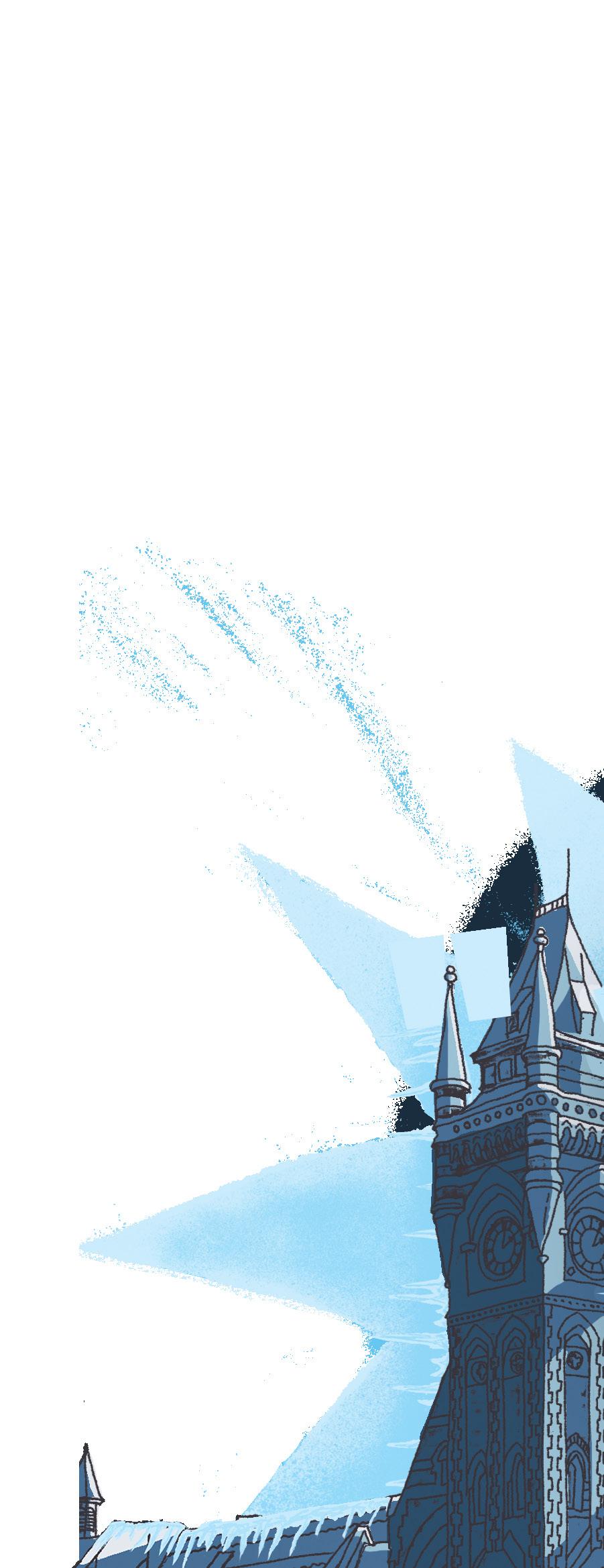

Beyond Student Health, there’s plenty of support available on campus for everything winter throws at you. OUSA Student Support is also well aware of the trials and tribulations of the winter blues, telling Critic: “In everything we do we are conscious of student wellbeing and offer wellbeing support and advocacy for students. Particularly at this time of year we are mindful it could be present for any student we are working with.”
Jordan encourages anyone who relates to their experiences to look into it. While Phil says there’s a tendency for young people to pathologize common experiences – which the winter blues inescapably seems to be in Dunedin – Jordan says, “I don’t think it’s a bad thing to inquire about it.” They explain that those with mental health disorders will often second-guess themselves. “There is no harm in thinking like, ‘Oh, I might have this thing.’’ There’s probably a reason why you thought you have this thing, and that’s something to try and solve. So I don’t really see that big of an issue with it necessarily."
Thinking ahead, long-term, Phil advises students to plan ahead for next winter in your flat if you can. “We know winter happens. It’s a predictable thing, you know it’s going to occur at a certain time every year, so pre-planning is probably a good thing.”
A warm, healthy home makes a world of a difference, but it can also be a sticky subject because of the price tag attached. Phil's advice is, rather than having that discussion when the big power bills begin to roll in (and speculating who’s to blame), have a flat chat as soon as your flatting group is locked in. He points out this is preferable to trying to hash it out “when everyone is feeling a bit shitty and miserable and getting stressed about other things in their life as well.” No one wants to be spoiling friendships over using the dryer or enjoying a long shower.


As for prepping for winter in general, Phil’s advice is to ask yourself this: “What am I going to do to keep myself going through this if I notice my mood drops a bit in winter? How am I going to manage that? Who am I going to talk to? What friends can support me through this?” Or rob a bank, abandon ship, and escape to Europe. As a treat. *Name changed.

On August 31st, 1992, 20-year old student president Grant Robertson gave Critic Te Ārohi what was quite possibly his first ever interview. 31 years later, Grant returns to the Clocktower, this time as Vice Chancellor of the University of Otago. Critic sat down with Grant once again to discuss living on Castle Street, trailblazing student protests against neoliberalism, Palestine, queerness, free speech, and Sex and the City.
Note: This interview has been edited for length and clarity.

By Iris Hehir
CRITIC: Let's start with your beginnings in Dunedin. When did you move to South Dunedin?
GRANT: We came down here when I was six [...] I went to St Clair Primary School and [...] Macandrew Intermediate, which is now Bathgate Park School, and then to King’s High School.
CRITIC: Do you come from a middle-class background?
GRANT: Relatively. We certainly weren't in a position where we were really worried about money, but we also didn't live a flashy life. We had two second hand cars, but we were comfortable. Then that got turned upside down when I was in my second-year here at Otago. My father actually was arrested and went to prison. He was an accountant and, unbeknownst to all of us, he'd been stealing money from the law firm he worked for. I guess apart from all the upset that it caused in our family, [it] also put me in a position of not having any backstop or [financial] support at all. My mum wasn't working at that stage. That was a really difficult time financially and I certainly felt [it's impact] for a few years after that.
CRITIC: Did you grow up in a politically conscious household?
GRANT: I think the answer to that question is yes, but not a party political one [...] My mum and dad, especially my mum, talked about political issues a lot. We were one of those households where as kids we were [...] part of those conversations. My grandfather on my mum's side [...] never got into Parliament, but he'd been a Labour candidate. Mum had kind of inherited quite a few of his thoughts and feelings. It was definitely a household where we talked about those issues.
CRITIC: When did you first become interested in politics?
GRANT: I can remember the 1984 election. I was twelve, which is a bit geeky [...] that was the election where David Lange's Labour government [won]. It was a big change [...] then through my high school years, different issues came up. New Zealand being nuclear free was a big issue for my generation. At the end of my high school years [...] fees got introduced to the universities. That kind of politicisation for me carried through. By the time I finished at high school, I was probably a bit of a boring politics nerd.
CRITIC: Did you know you wanted to be a politician by the time you were a student at Otago?
GRANT: No, I don't think I even knew what that meant. I knew who politicians were, but I had no idea how you became one. My arrival here coincided with tuition fees being introduced. I was politically active and then became what was called then a 'student politician' [...] Then I moved to Wellington and did the New Zealand Union of Students' Associations job [...] I was like, 'Okay, this is what it is.' The idea that maybe I could do it probably emerged about then.
CRITIC: Did you work any jobs while you were a student here?
GRANT: I certainly did [...] I worked at what's now Pak N' Save South Dunedin, but then it was a New World. I was the fruit and veggie boy [laughs]. Awesome job. I did that all the way through ‘til my last year at university. I think I ended up being the Saturday manager of the food and veggie department, which was a big honour. Then in my last year here, I actually worked as an assistant in the library.
CRITIC: Where did you flat?
GRANT: Okay! I stayed at home in my first year, and then in second-year I flatted in Castle Street —
CRITIC: — Oh, what flat?
GRANT: 620 C. It's down a driveway and it's a two story [building]. We were upstairs. Not the highest quality accommodation we could get, but a pretty entertaining year all round. Then [in third-year] I flatted in Melbourne Street behind the Woodhaugh Garden. It's an old pub [...] we were on the ground floor, which was fun, but very cold. [In fourthyear] we were on Queen Street [...] and then like a lot of students, I eventually moved a little bit further away. My last flat was on High Street.
CRITIC: How would you describe the culture of Castle Street back then?
GRANT: It was definitely a place where people were having a good time. One of the differences was at one end of the street was the Gardens Tavern (Gardies), the other end of the street was the Union,
the Cook and the Bowler [...] we were going places like student bars as opposed to some of what I see nowadays. But you know, I have to confess… for me, it was [about] being close to Uni. It was the best bit about [living on Castle Street]. I could get up quite late and still make it to my lectures.
CRITIC: So you weren't as into the party scene as one might assume?
GRANT: Um no, yeah, I dunno [laughs] I better be careful here, but yeah. I mean, look, you know, we enjoyed ourselves. We had a really good time there.
CRITIC: What was it like being a queer student at Otago in the '90s? Were you openly gay?
GRANT: I was out to my close friends, but it was a different environment. One of the things I did [...] was I helped establish UniQ, which still [exists] as the network of queer student groups around the country. Partly we did that because there wasn't a lot [of support]. There was a really good group here [at Otago], but it was small. I knew lots of people in it, but I was still in the process of working out exactly who I was.
[...] It was less of an environment in which [being gay] was something that everyone was comfortable with and talked about [...] That's one of the really good evolutions, over the years. It's still tough for a lot of queer students, but you can see the 30 year difference here.
CRITIC: You’re quoted in the Critic archive saying that establishing UniQ was one of your proudest achievements during your time as president. Is that still true?
GRANT: Definitely. That actually came about from [my work at] NZUSA (New Zealand Union of Students' Associations) rather than OUSA. But absolutely [...] 30 odd years later it's still there. You can see it mattered then, and it's lasted. I mean, there's lots of other highlights when I think about OUSA. The Student Health buildings that now exist over there came about from some work we did [...] we got the first hardship fund introduced. There were lots of those kinds of wins along the way. I can look out here and see the safety phones. That was us. There's a whole lot of [different] things which I'm proud of as well.
CRITIC: Tell me about your experience first running for OUSA President.
GRANT: I actually ran for [the 1992] OUSA exec [...] and I missed out. Then before the year started [...] one of the people who had been elected didn't come back to university. So they ran a by-election, and I was like, 'Ah...' but someone said [to me], "I'll put your name." I didn't do any campaigning. I won [laughs] [...] at some point in the year, I must have decided that running for president was a good idea.
I made these terrible posters of myself. You'll be able to find one somewhere, it was really lame. 'Cause this is before Photoshop. We literally like cutting stuff out and pasting [...] me in all these famous situations. So I was there with the Kennedys and I was with Martin Luther King [...] that poster campaign was a big part of me winning, I suspect [...]
CRITIC: I did want to touch on your relationship to Critic as president. Our current President Keegan, she's a friend of the office and is always popping around – probably partly because she used to write for us. But what was your relationship to Critic like?
GRANT: It was really good. The then-Editor Colin Williscroft and I [...] became good friends. In those days the president had to see Critic before it went out [...] back then I had to effectively sign off that [the issue] was legally okay. I would be [in the office] on publication night, which maybe was a Wednesday [...] there was a lot of fried chicken and beer and things [...] Critic was awesome then. It is awesome now, of course.
[...] My big memory of Critic from that year was the big protest at the end of 1993, where the police were involved. [Critic] produced a special edition overnight, which in those days was really, really challenging to do [...] they worked all night and we had the special edition the next day, which was just amazing.
CRITIC: You led that protest in 1993 against the Uni's proposed 15% increase of fees that saw students arrested by riot police. Could you please describe the circumstances leading up to the protest and what you wanted to achieve?
GRANT: In 1993, the government of the day, its budget was pretty harsh on tertiary education [...] in the early '90s it had gone from the government settling on one standard fee [...] to them devolving that decision to individual universities, which is the position we have nowadays. At the same time, the government was cutting funding, so not just [failing to] increase funding, but actually cutting it as well.
The University, in its wisdom, decided that it needed to kind of balance all that out. As you say, [by] 15% – actually, the next year it was 18%, so it was even bigger. I was still on the University Council, so we'd had quite a lot of activism around that through the year [...] students really felt like they hadn't been listened to by the University, and so the protest was to make that clear.
Myself and the other student rep [...] walked over here with everybody, went into the meeting. The students stayed around outside, and we lost the vote on the fees, obviously [...] the meeting finished, I went outside and [...] some students tried to get into the building and had been arrested [...] The real view of students was that they were unhappy, but the meeting had finished. What they [actually] wanted was the arrested students to be let out. I came back into the building and there were some conversations about what happened next between myself and the Proctor. But unfortunately, the police were there.
There had been a bit of history between students and the police. [The relationship was] not great over the early ‘90s [...] the students who were sitting out the front of the registry building had to be moved. And unfortunately, that's what [the police] did with their batons and riot shields. It was really awful. The next night I was on nationwide TV on the equivalent of Seven Sharp, talking about what had happened.
Eventually they followed some arrests and the police came and they arrested me, but they never charged me [laughs] [...] Ultimately it was a peaceful protest. And I think nowadays the police wouldn't act the way they did then. They just wouldn't do it. And that's a long story, isn't it?
CRITIC: It's a good one. Would you say that your opinion on tertiary education fees has changed since you first protested them as a student?
GRANT: In principle, my view remains that we [...] need to make tertiary education as affordable as we possibly can and remove barriers to it. I haven't changed my view on that. Probably the big difference now is that the loan scheme that's in place now is interest free. It wasn't then [...]
I also over time have understood that, from a government perspective, you are balancing a whole lot of different things. You need to fund housing and early childhood education and health, and tertiary education is [just] one of those things [...] When I was [Minister of Finance], it was a real balancing act [...] I'm more aware now of some of the other pressures and I do think we've got a better loan scheme than we had.
CRITIC: You've been called the trailblazer of the Otago Uni student resistance against neoliberal policies. What do you think that your reaction would've been as a student to the news last year of the University's $60 million budget deficit and staff cuts?
GRANT: I don't know, really [...] I remember that I certainly appreciated the staff who I worked with when I was a student here, so I'm sure I would've been concerned and worried for them. I was on the University Council for two years, and so I did kind of have some awareness of the way the budget was put together [...] It's been really tough on staff. It's been really hard on students.
Equally, the Council has a legal obligation to get the finances back in shape. So, it's about how we do that [...] I'm super optimistic about the future of the University. I think we are going to see enrollments come back. I think we are going to see the University get back on the front foot, but we've had a difficult period. I really hope 30 years ago, Grant would've been sympathetic to the staff involved, but also looking for a constructive solution.
CRITIC: You're a very well known public figure within New Zealand, first becoming known in the 2000s. Since then, the nature of being a public figure has changed a lot, with the internet, the media going online, and smartphones. How has that shift affected you from when you first began your political career?
GRANT: It's just so different [...] When I became an MP, Twitter had just started. Very few people had smartphones and obviously that evolved quite quickly. It's harder being a public figure [...] I think the level of hatred and misogyny [against female politicians] is horrific. I also experienced some, partly as a result of being gay, but also just [...] being a public figure. You learn to develop a thick skin [...]
You also [mention] the changing media landscape. The volume of media work as a politician just kept going up and up and up. Every podcast, every news outlet [...] It's hard in the media sector [...] but the expectations on our availability and responsiveness just kept increasing. The amount of time you have to get back to somebody for a story just disappeared overnight.
[...] So it's a really different life. It's much more exposed, it's much more public. You know, I'd never ever want to put someone off from going into politics 'cause I think it's a really important thing for people to do. But it does come with a bit of a health warning.
CRITIC: As for your appointment as Vice Chancellor, what was the thought process behind retiring politics and taking up this position?
GRANT: After the 2023 election, 15 years as an MP, I'd done nine years in opposition. I didn't fancy that anymore [laughs], but also [...] it was kind of a natural breakpoint for me. I'm 52, [I was] keen to do some other things. I didn't know what those other things were. Then someone put this idea in front of me. I'm [not an] academic [...] but I really do love the University of Otago and Dunedin [...] So I kind of put my application in, not really thinking I'd get very far with it actually. It's been a great journey to get here.
CRITIC: As you said, you're not an academic. There's an increasing trend for universities to appoint non-academic leaders. Why do you think that is and what do you think the advantages and disadvantages are?
GRANT: I think each university will have its own reasons for why they choose to go down that path. I think increasingly universities are big complex organisations that while at their core are about teaching, learning, and research [...] over time, perhaps universities have started thinking, "We might need people with a big range of skills," which may or may not come from someone who's an academic.
In terms of the advantages and disadvantages, I think a fresh set of eyes for Otago is a good thing. It's been a challenging time. I come as somebody who loves the place and wants it to succeed and [I have] different perspectives [...] coming from the background I have, I know how government works, I know how decisions get made. I've clearly been involved in financial issues [laughs], there's a lot of positives there.
Obviously disadvantages are [that] I'm not an academic, and the core business of this institution is the academic side. But I am academic adjacent. I've got brothers who are academics. I've been close to a lot of people who work here and I really believe in what they do. I'm certainly gonna be working closely with the academic staff [...] I think there's a lot of people around me to support me in spaces where perhaps I'm not the traditional candidate.
CRITIC: What are the types of decisions or behaviours that you think you'll have to change from being a politician to Vice Chancellor?
GRANT: That's a really good question. I think the pace of decision making in government's a bit quicker than it is in universities. That's just the nature of a weekly cabinet meeting and everything happening in Parliament and so on. It's a bit different here [...] I think [I need to maintain] respect for the traditions and the history, whilst also looking for ways of making our decision making process inclusive and effective and efficient [...] there's always ways we can improve it.
CRITIC: Onto university issues that we're currently facing. First the budget deficit: do you have a plan going forward?
GRANT: I've actually inherited a plan. Lots has been done. There are a few more challenges to go. As I said earlier, the University has to, both legally, and to do

the right thing, get its finances sorted [...] so the plan is there. We will get there.
CRITIC: During your time as OUSA President in the '90s, you attributed the privileged backgrounds of most students for the reason for lack of engagement with student issues, stating: “Ones that do have enough money and don’t give a shit about anyone else. It’s more than apathy — it’s straight out individualism. They only really care about themselves. Increasingly, people are set up to think about themselves, and so they do [...] Those who can afford to be here are here, and trying to prick their social consciences is sometimes very difficult.” Last year Critic reported that 60% of first-year students come from decile 8 to 10 schools and Otago undergraduates are 24 times more likely to come from schools in the top 10% wealthiest areas than the poorest. Do you still view this as problematic?
GRANT: I was having a bad day that day, wasn't I [laughs]. I certainly want to make sure that [...] the educational opportunity is available to all New Zealanders. Otago in Pae Tata – the strategic documents – has got some really important goals around equity and enrollment, particularly amongst Māori and Pasifika students and students with disabilities. I'm keen to push on with that. I want this to be a place where we see a diversity of students and staff [...] There were some great people who come out of high decile schools who are well motivated, as well. Clearly I was feeling something quite specific at that point.
CRITIC: The Tertiary Education Commission looks to be giving the green light to increase fees by up to 6% next year. That might come at a cost against students who can least afford it, from families that can't make up the difference. Does that worry you at all?
GRANT: We haven't made a decision about that as a university yet [...] we have to think about what we do. We've gotta balance [...] exactly what you're saying, that increasing fees can really impact people, with the fact that we have to make sure the institution is addressing [our] financial issues. There are a number of different ways we can support students – as well as that [fees] decision is what we do with scholarships and how we make sure those students from backgrounds that might not otherwise get here, get here.
CRITIC: There has been pressure on universities to make public stances on the ongoing conflict between Palestine and Israel in the Middle East. Massey University recently issued a statement after months of student protest condemning the act of genocide generally. An open letter was signed by staff, students and alumni calling on Otago Uni to condemn Israel’s “genocidal” acts against Palestinians, and cut all economic ties to Israel. Do you have any response to this open letter, or do you plan on issuing a statement in the future?
GRANT: I'll have to check where the letter is at because it's not one that I've actually seen, to be honest with you. In general, I think for universities our first and foremost obligation is to look after the students and the staff who are here and make sure that we provide a strong and supportive environment. Individual staff will have potentially quite different views about elements of any issue that might be going on politically. So, as a university we've gotta kind of think about that and manage that first and foremost.
In terms of the specific question, the big issue internationally particularly has been universities with investments [...] supporting Israel. That isn't something that the University of Otago has. That's not an issue for us. But when we think about political issues, we've gotta bear in mind the balance of the staff and students who are here and how they feel on any given day. I can have my own personal views about [Israel-Palestine], but as Vice Chancellor, I've gotta make sure I uphold that [principle] for the University. I'll have to take a look at the letter.
CRITIC: So you don't think that the university should have political stances?
GRANT: It depends on what the issue is and how relevant it is to the operation of the university. Individuals within the university will always have political views. Student groups will always have political views, and from time to time the University will take stances. I guess all I'm saying is we've gotta be respectful of the different views that are already contained within our community here.

CRITIC: You approved the release of the University's statement on free speech, which is being praised by free speech advocates as the gold standard of these policies. Why was it important to the University to release the statement of free speech and what might it look like in practice?
GRANT: [...] [Free speech is] the lifeblood of a university. It is what [university] is about, the expression of ideas and the debate about those. It's why we all come here, to be a part of that. So it is really important to me – this process obviously predated me – but for the University to have something that [...] people, the whole university community could go to and say, "That's the University's view together about what [free speech] is." Within the statement it also talks about the importance of [...] manaakitaka. We balance our rights of free speech with our responsibilities in that regard.
CRITIC: Artificial Intelligence (AI) poses a huge change to academia. There's obviously threats, but there also will be opportunities. What are the main ones that Otago University must grapple with?
GRANT: The first thing is AI is here [laughs]. We've gotta grapple with the fact that it's relevant in every aspect of what the university does [...] There are massive opportunities for things being more efficient [...] I think students coming into the university increasingly will be great users at generative AI. We need policies that are clear about how that works with your academic studies [...]
There's opportunity there, but there's also challenges ethically. How do we make sure AI is a force for good? How do we make sure that it's not used to reinforce racism or other discrimination? We need really strong and robust policies to make sure we utilise it, but that we also protect and support our university community. We're not alone. The whole world's dealing with it and there's a lot we can learn
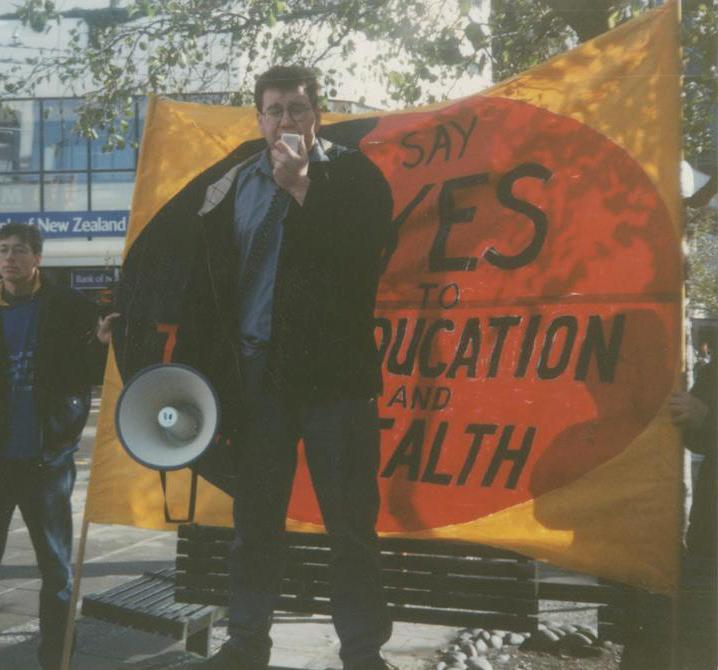

from that.
CRITIC: Last year, Otago Uni made national headlines for flat initiations – most notably over the abuse of a live eel and alleged biting of a duck legs, the latter of which both Critic and the Proctor are pretty certain never happened. Regardless, initiation season is coming up again. How do you plan on tackling this issue within our student community?
GRANT: Yeah, look, the most important thing for me is that we work with students around how they can make sure that living in flats, they live well and they live healthily and they have fun. For me, the initiations that you've described don't fit into any of that. I have zero tolerance for the kinds of things that I heard about [...] people can expect that there will be consequences when that happens.
CRITIC: Do you think the University should be able to regulate student's behaviour off campus in the manner they currently do?
GRANT: It's a really challenging area and there are legal cases about this. OUSA and the University had one [about this issue] a few years ago. What I do think is where we compromise the safety and the health of other students, then there are issues for the University.
CRITIC: Okay, quick fire round. Law or med?
GRANT: Law.
CRITIC: Cats or dogs?
GRANT: Dogs.
CRITIC: Pepsi or Coke?
GRANT: Coke.
CRITIC: Are you a morning or night person?
GRANT: Used to be night, now morning.
CRITIC: Fiction or nonfiction?
GRANT: Oh, is it what I want or what I do? [Laughs]. Non-fiction.
CRITIC: Do you have a tattoo?
GRANT: No.
CRITIC: Would you ever go on Dancing with the Stars à la David Seymour?
GRANT: Absolutely not.
LIANE (UNIVERSITY COMMS): Grant!
CRITIC: What's your go-to cocktail?
GRANT: I'm pausing 'cause it's an important question. What was the one they used to drink in Sex In The City? [pauses] I'll say Negroni but I don't think [Carrie Bradshaw] had a lot of them.
CRITIC: What's your guilty pleasure?
GRANT: Coffee.
CRITIC: Unpopular opinion?
GRANT: Parliament should have a four-year term.
CRITIC: Who's your celebrity crush?
GRANT: Such a good question. Who's my celebrity crush? Tom Holland.
CRITIC: And what New Zealand rugby team do you support?
GRANT: Uh, the Highlanders!

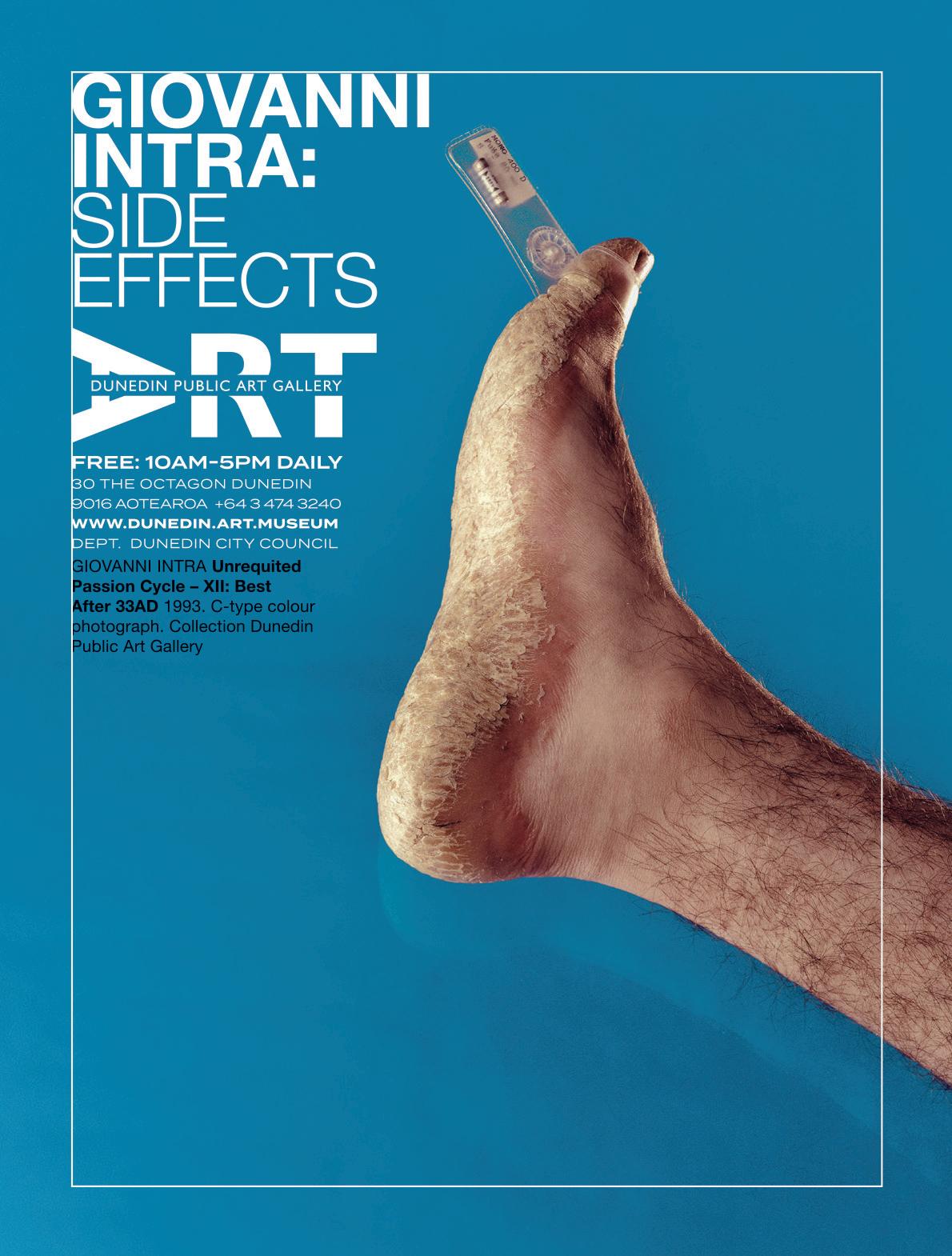
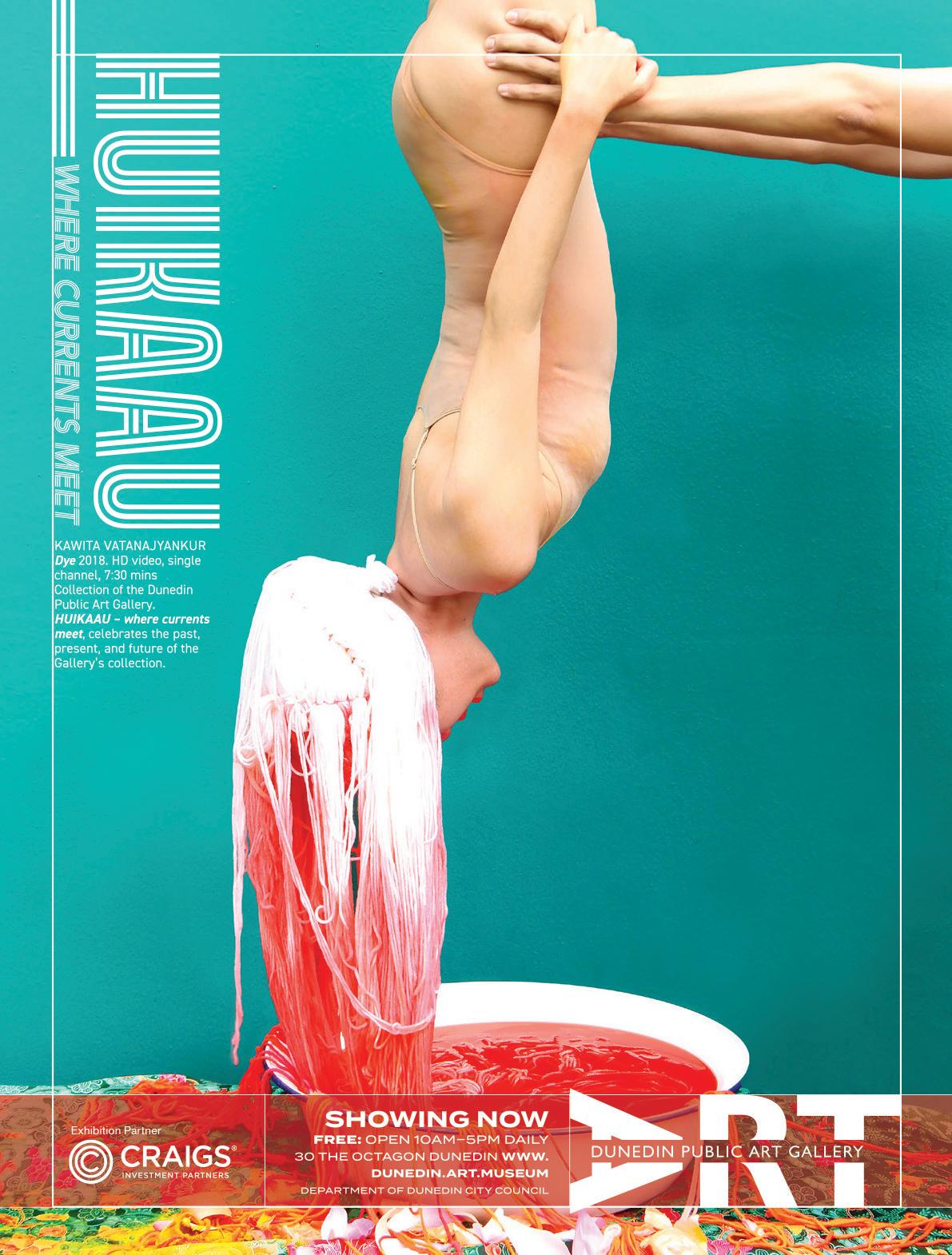





Named after a Pixies song that they jammed for the first time just over a year ago, Caribou has been making an impact on the Dunedin music scene. Made up of members Mario (he/they) on guitar and vocals, Cam (he/ him) on drums, Colton (he/him) on bass, and Ben (he/him) on guitar, their indie sound can be heard at U-Bar, The Crown and Errick’s. Critic Te Ārohi interviewed the band about their upcoming releases, Pixies influence, and Flipper Fest.
Ben and Mario instantly clicked the first day in halls after discovering that they were both musicians, their shared love of the Pixies (among other alternative artists) and of the Scooby-Doo theme song. “We were coming home from one Pint Night just singing it for some reason and thought it would be fun to do at gigs,” says Mario. “I still haven’t learnt the words yet, I just vomit nonsense in the microphone and let the crowd help out,” he adds. Caribou is known as “Ōtepoti/Dunedin’s second favourite ‘Country’ Band,” a title stemming from an intercollege battle of the bands where Caribou lost to a country band, after previously joking that they were themselves a country band. “We even do a Johnny Cash cover so we joked that we were a country band because of our one cover!”
The band have already released two singles ‘Big 18’ and ‘The Crack’. The songs are very conflicting in nature, exemplifying the band’s range. “Big 18 is more of an indie pop song and then The Crack is a Sonic Youth type
thing with a lot of screaming,” says Mario. Ben adds that “there should be more screaming in the world.” The ideas for the songs often come from Mario, especially lyrically, and then “we all [...] just come together and jam for a couple of hours,” explains Cam. Mario adds, “The Crack was a good example of us just bouncing ideas off of each other, trading stories about nights out.” A lot of their songs come from stories or personal emotions. The band have a couple of unreleased tracks that they plan to sprinkle out through the rest of the year.
Among Caribou’s big plans for this year is Flipper Fest, a festival they started to help raise funds for the Yellow-Eyed Penguin Trust, set to happen this August 8-10th. Mario explains, “The Trust does conservation for the penguins up around near the albatross colony. They take care of the sick penguins and give them a safe environment to live in. I went there with my mum before uni started and it has been something that has always stuck with me.” The three-night event will feature 18 bands to raise money, including Dud Uglys and Out of Luck. “We are all looking forward to it,” says Mario. “Up the penguins!” adds Colton.
You can find Caribou on all streaming platforms and follow them on Instagram @caribou.band to see upcoming gigs, releases, and stay in the loop about Flipper Fest!
By Jordan Irvine



These days, it's far too cold to walk to campus from Harbour Terrace. You don’t want to take the bus (because that involves waiting) so you decide to take your car which, let's be real, has no WOF and is probably due for a service – but that's a problem for Future You! Given that it's winter, ice tends to form pretty quickly on windscreens, and yours is no exception. Despite what your mates say about you, you’re not as thick as you look and aren’t willing
to drive blind. Critic has your back, with five (plus) ways to defrost your windscreen.
Note: Critic Te Ārohi takes no legal responsibility for any accident, injury, or breaches of New Zealand law that occur due to you doing some of the stupid shit listed below.
1. Leave something on it overnight

An ounce of prevention is worth a ton of cure, so why not make it so you don't need to scrape at all? Lay a blanket or a cardboard box over the windscreen so no ice can form, making your life that much easier!
2. Scrape it off with your student ID
Get to work! Use your student ID to hack away at the ice on your windshield (bonus points for bumping ‘The Frozen Heart (Ice Worker’s song)’ from Frozen whilst doing this) and you'll be ready to go in no time.
3. Turn your AC on to warm the glass + wipers
Are you rich? Do you use Mummy and Daddy’s fuel card? Then this one will work a treat for you! Leave your car running whilst you have your double shot frappajappachino that your live-in nanny made for you, and let the wipers and the air conditioning do the work for you. Only the poor people do manual labour – at least that's what Daddy says.
4. Flamethrower
Fuck it, we ball. Use a Lynx can, fly spray, a water gun filled with diesel (DO NOT USE PETROL) and hold a lighter in front of it. You can also
By Sam Soppet
watch Mad Max for inspiration. Now point that bad little motherfucker at your car and pray you don’t fuck it up, cos if you do, insurance WILL NOT cover you.
5. Water (not boiling)
Pour water – not boiling, for the love of God – on your windscreen, and scrape the ice off (apparently the DCC has free scrapers if you’re precious about your student ID). The water should make it a bit more compliant. If not, just do another step, because being committed to something that isn't working is kinda stupid. I think that’s what Einstein said, anyway.
1. Set your car on fire Nuff said.
2. Don’t have a windscreen I mean this is pretty explanatory. No windscreen = no ice.

FOR:
The change in season rolls by unnoticed in the depths of first-sem exam hell, but with calmer times ahead we can stop and take a look around us. Of course, the negative side of this column will bitch about the colder weather, but this is actually winter’s greatest strength. Here are a few reasons why.
The first change seen on campus is the explosion of student-couture. Cold temperatures mean rugging up in more clothes, and that just gives you more to show off with. Go nuts with layering. Hell, you
can wear everything you own and slay through sheer volume. And for the less fashion-conscious among you, putting a jacket or a woolly jumper over that tee will do wonders.
Winter gives the young freshers a good hiding to sort the wheat from the chaff – anyone still out on the piss in sub-zero is sure to be from good stock. Cold also gets the arson spirit going in the student populace, harkening back to ancestral couch fire traditions. The camaraderie of crowding about a burning pile of old Critics and Domino’s boxes in the back garden goes unmatched.
On the softer side, the winter atmosphere has a unique loveliness to it. Crisp air and glittering ice crystals? Mist rolling off the hills? Leafless trees in a stark sky? Gorgeous. Perfect weather for a date. Offer them your hoodie (tried and tested seduction), or just huddle together “for body heat.” Maybe sharing a bed could keep the night chill away, too.
It’s always easier and cooler to hate on things, and there’s nothing easier to hate than The Current Thing. Currently, what we have is winter. In five months you’ll be moaning about trying to sleep in the heat. Why not romanticise the season a little?


Dunedin July has the dreariness of autumn, but the aesthetic orange leaves are replaced with more mud, grit, and bleak faces than you can hope to crop out of your Instagram posts. There isn’t even the dignity of a blanket of fresh snow, not for us; nor are the winters mild and forgiving.
Let me paint out your days for the next two months: walk to campus before sunrise over the solid turf, endure the symphony of hacking and wheezing and sniffing through your lecture, and make the most of your two free hours of washed-out daylight by huddling around a tepid coffee on Union Lawn. Then it’s the trek back to the flat, sun already set, knowing your flatmates are all arguing over the $400 power bill, with no-one allowed to crank up the heater until a majority consensus is met.
No flats are hosting tonight, and if they were, the long icy walk across town in the dark would be enough to put you off. Your breath is hanging in the air because your shitass landlord hasn’t sent someone around to fix the window that won’t close. What choices did you make that led you here? What sins could possibly justify this miserable existence?
This might be an argument of pure pathos, but I wrote this column in the dark and it’ll be dark 14 hours from now when I start my morning. I’ll wake up tasting ash from the coal fumes rolling down from NEV. Christ, it’s bad. Make a real meal, a stew or a curry or something, and put your skin in the sun for fifteen minutes a day. You’ll live but you probably won’t be having the best time.
Debatable is a column written by the Otago University Debating Society. The Debating Society welcomes new members and meets at the Business School every Tuesday at 6pm.
Ruby’s on vacay, so design intern Connor swooped in to save the day with his “banging” nacho recipe! Nachos are a classic go-to student meal, perfect for the colder weather for a quick and tasty feed. To make it vegetarian, simply swap the mince for more veggies such as carrots and capsicum.
Ingredients:
500g mince
1 can chilli beans
1 can diced tomatoes
2 100g bags nacho chip of choice
Seasonings of choice
Handful of grated cheese
Sauce of choice
1 onion, diced Oil
Peri Peri mayo goes hard
I went with Mexicano Corn Chips, SweetThaiChilli
I used paprika, cumin, turmeric, mixed herbs, salt, pepper
Step 1: Start by coating the bottom of a deep pan with olive oil, and bring to a medium/high heat.
Step 2: Add your mince to the pan and cook till brown.
Step 3: Once the mince is cooked, add your beans, canned tomatoes, diced onion, and seasonings. Mix together well.

Drinking a non-alcoholic beer for the first time is a strange experience. It tastes like beer, smells like beer, makes you crave nicotine like beer, yet there’s something missing. It’s like drinking out of a weekold luke-warm keg that has long lost any sense of its carbonation. You're still drinking, yet that satisfaction isn’t quite there. That, or the looming sense of hangxiety. Either way it counterintuitively makes you want to get on the piss. Not too dissimilar to drinking at U-Bar, really.
Much like anchovies, Heineken 0.0% is an acquired taste. Not due to the potency of flavour, but in that it demonstrates how mature and grown up you are, and that you’re better than everyone else. It’s a demonstration of self-control while simultaneously trying to prove you’re still one of the boys; an alternative to making one leftover Summit last three hours just to make people stop asking why you aren’t drinking. Seriously, just let them live.
creates a mouth feel of what I imagine drinking unfiltered water from the most polluted parts of the Leith would feel like, leaving a hell of a lot more to be desired.
In terms of non-alcoholic beers, however, Heineken 0.0% is actually pretty good. The difference in taste from a real beer isn’t too far off the original (one could debate if that’s a good thing), and definitely worth trying if venturing down the road of nonalcoholic beers this Dry July. Unlike the monstrosity of Export Gold 0.0%, which somehow manages to make a shit beer undrinkable. A 12 box of Heineken 0.0% will sting you $29.89, which somehow manages to be $4 more expensive than a box of Heineken Classic cans. Health is wealth, I guess.

With that being said, getting a good taste out of a Heineken 0.0% is like trying to steal meat from a hammerhead shark. Heineken 0.0% is ultimately the watered down alternative to its alcoholic big brother. The bevvy itself is fairly similar to Heineken Silver, although the body of the beer is not thick at all. This
PAIRS WELL WITH: A post-grad unironically discussing the stock-market at a flat party
X factor: Unmatched beer pong longevity
CHUGABILITY: 1/10. Funnelling one of these should be a crime.
TASTE RATING: 6/10. It’s missing something.


Hey gamers. It’s me, your International Rep, Buki. Critic’s foolishly given me this little box to write in. Like, I could say anything right now. But I’ll be nice. There are many things I wanna to tell you, but I’ll save those for another time because I am here for one reason and one reason only:
***FILL IN THOSE LECTURE RECORDING CONSULTATION EMAILS*** (Please).
The Exec have been working legit all year on this policy and I think it’ll be an absolute game-changer for students. It’ll be helpful for neurodivergence, disability, cost of living (sometimes you need to pick up a shift), language barriers, sickness, safety and even more of that nerdy yet important stuff. We just need 6000 responses and that’ll help us get the policy over the line, and hopefully in place by next year!
To fill you in on what’s happening, we’re getting a lot of staff pushback on this from those who are worried about attendance and educational outcomes. But I think, if anything, if every lecture is recorded it creates an incentive for these professors to work harder and make their
lectures more interesting/engaging/interactive so that they are worth going to in person.
For instance, in the past I’ve had lecturers who played games with the whole theater; some lecturers sprinting around the room to prove a point; and also some lecturers just being genuinely cool and down to earth people that you can't help but go talk to them afterwards to hear how they got so smart. Why would anyone miss sick lectures like that unless they had a valid reason? You’re literally paying to be here and take these classes, and we’re all passionate about our degrees at the end of the day, otherwise why would we be here? But sometimes other shit just comes up, and that’s life.
Right now, a lot of lectures in person are unfortunately basically video recordings the way they are so one-way and stale. So let's get this policy over the line, and let’s hit play on this teaching style that has been frozen in time for so long. Or at least 2x speed this part since it’s kinda lame. Respond to those emails, pretty please?
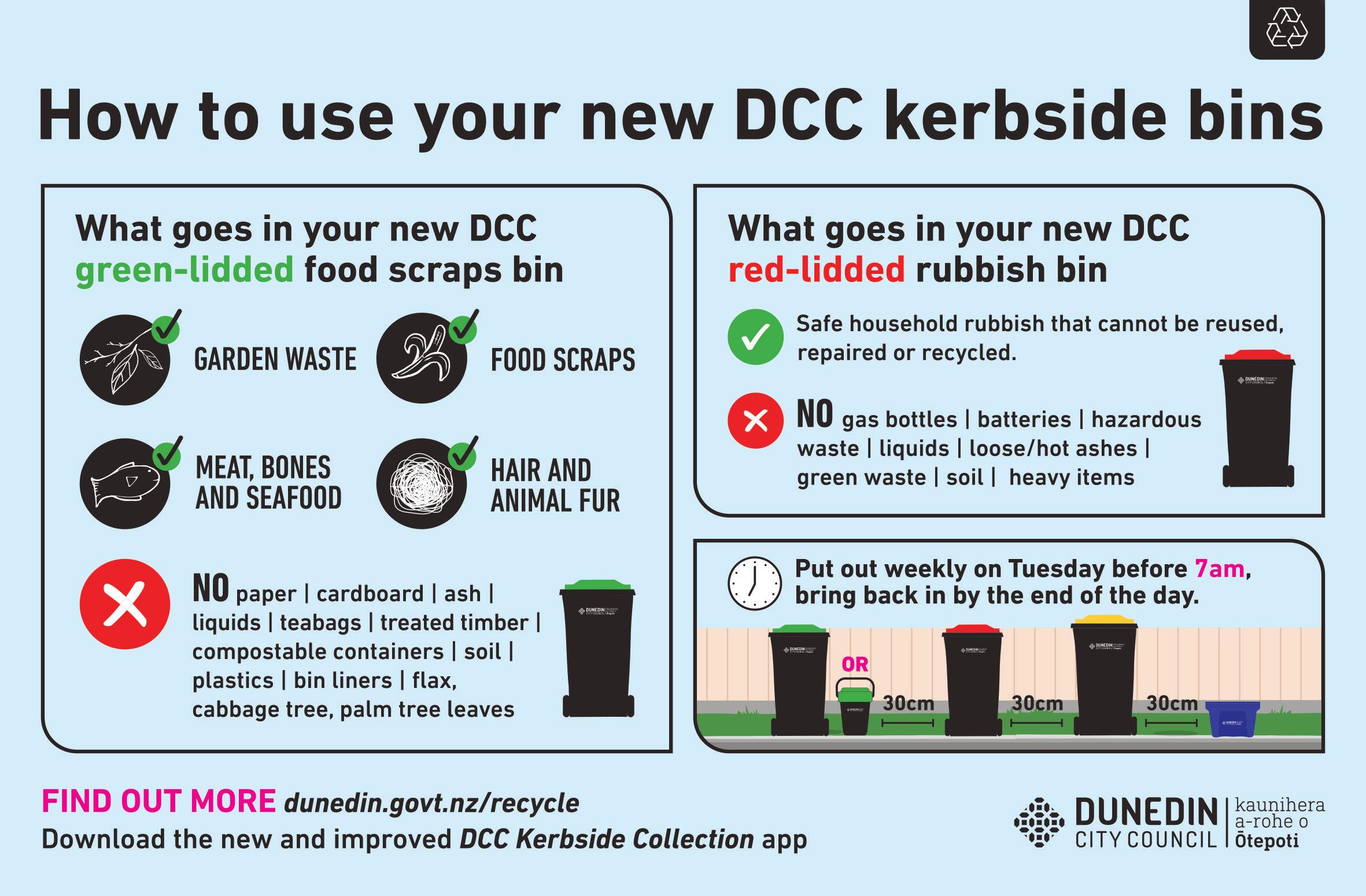
It's time to decide if you will continue to sell your soul to please others. Life can be a little bit scary at times, but so can you. Make sure to stand your ground and not let yourself wonder if you were silent or if you were silenced.
If you were a TikTok trend: Who TF did I marry pt.43
As a fire sign, you can become too passionate about your actions. While some may see this as a negative trait, they are just jealous of how many connections you have on LinkedIn and how many skills you gained from those babysitting gigs. You looking employable as fuck!
If you were a TikTok trend: The Tyla dance
Gemini
Your love life is about to improve to no end. Things are about to get very intense very quickly, so make sure you saddle up for what could be the start of the most passionate relationship of your life. Your sun is Leo is boosting this 10000x
If you were a TikTok trend: Booktok (specifically faerie porn)
Leo
It’s finally Leo season and by god has your energy been missed. Your connection to your deeper self will realign this week and the answers you have been searching for will suddenly appear in the least expected of places.
If you were a TikTok trend: 75 Hard
Libra
You excel at making everyone around you happy, but this week focus that energy on yourself. Spend a little extra cash on getting a name-brand pasta sauce and treat yourself to one of your guilty habits. Everyone needs a bit of time to recharge.
If you were a TikTok trend: Hawk Tuah
Sagittarius
Sag’s, get your dancing boots on, it's time to kick up a little dust. This week is calling for spontaneity. Put in the effort to get the trip out of the group chat, even if the group chat doesn't survive the trip.
If you were a TikTok trend: Meow Meow Meow Meow (What was I made for)
Dream big, you never know what could happen. Your youth is the most tumultuous time of your life, and while this week is guaranteed to hit you with a few punches, your vision of the end goal will get you through.
If you were a TikTok trend: Mukbangs
Taurus, this week Uranus is kicking you in ur anus so be sure to expect the unexpected and prepare for the worst. This is not a drill.
If you were a TikTok trend: How to: Extreme couponing

Cancer
Creativity has always come to you in leaps and bounds, and this week is no different. However, you’ll need some creativity to get over certain hurdles. Strange issues require strange solutions, and it's best not to question the universe.
If you were a TikTok trend: Thirst traps
Virgo, it’s time to get your nerd on. It's only week two, and somehow you are already 17 lectures behind. Balance does not mean sleeping in ‘til lunch and using your lectures as background noise for online shopping.
If you were a TikTok trend: Charli xcx Apple dance
Scorpio
This week might not be the easiest with both Pluto and Saturn in retrograde, but you’ll come out of it on the right path. Sometimes you feel big emotions you don't know how to express, but don't worry: those closest to you understand and will hold your hand through it all.
If you were a TikTok trend: Those rapping Irish kids
Capricorn
Sometimes setting expectations for yourself just makes you dread the actions that will lead to success. Just take a deep breath (Xanax), do some self-reflection (acid), and go out into nature (weed), then everything will start to make sense.
If you were a TikTok trend: Outfit of the Day

SEND A SNAP TO US AT @CRITICMAG BEST SNAP EACH WEEKS WINS AN OUSA CLUBS & SOCS SAUNA VOUCHER SNAP
